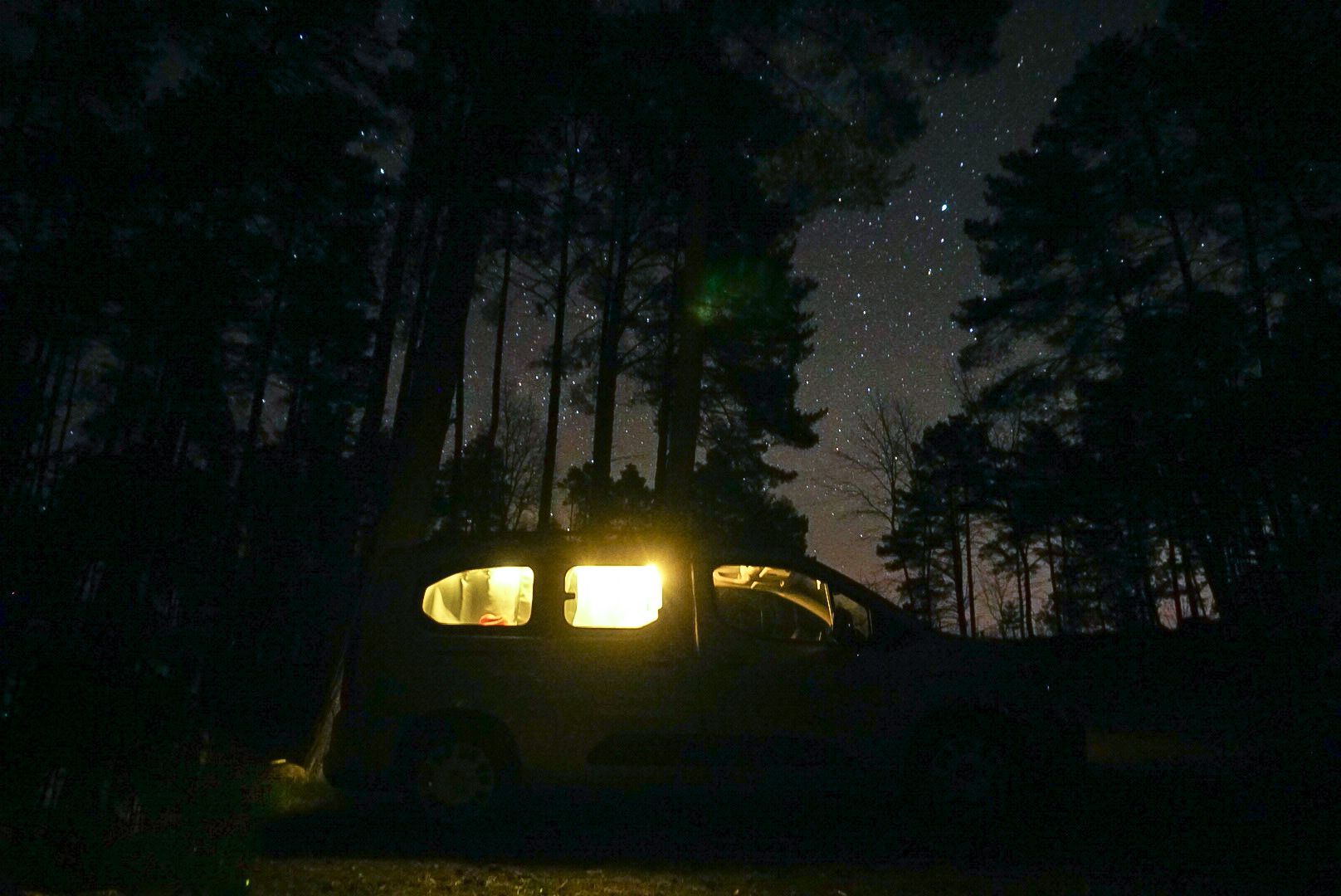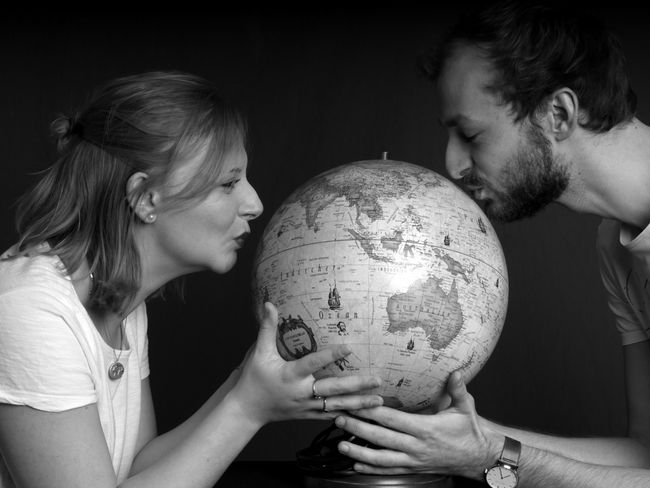Desert, Oasis, Wineries, Canyons, Islands and Penguins - together in Ica & Paracas
Објавено: 26.10.2022
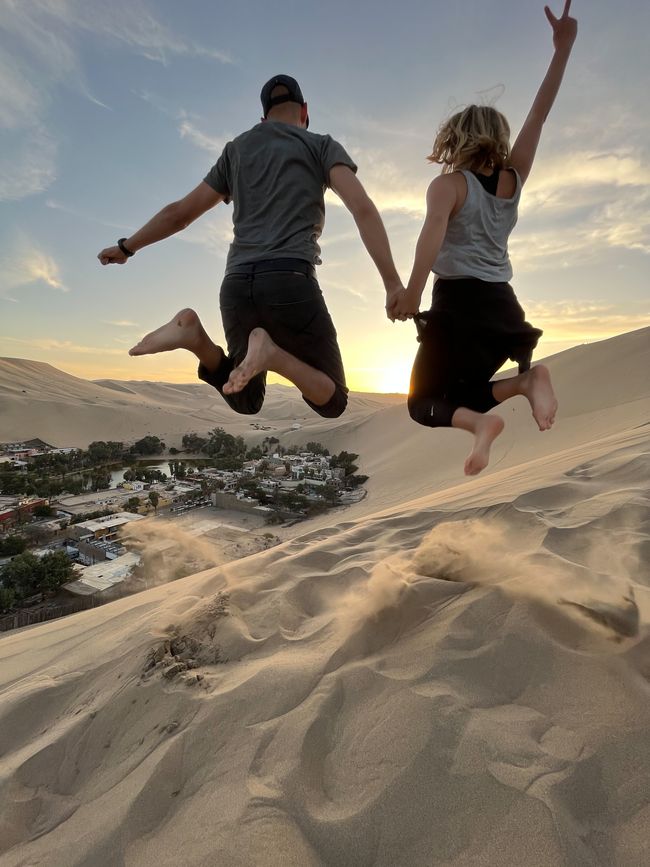
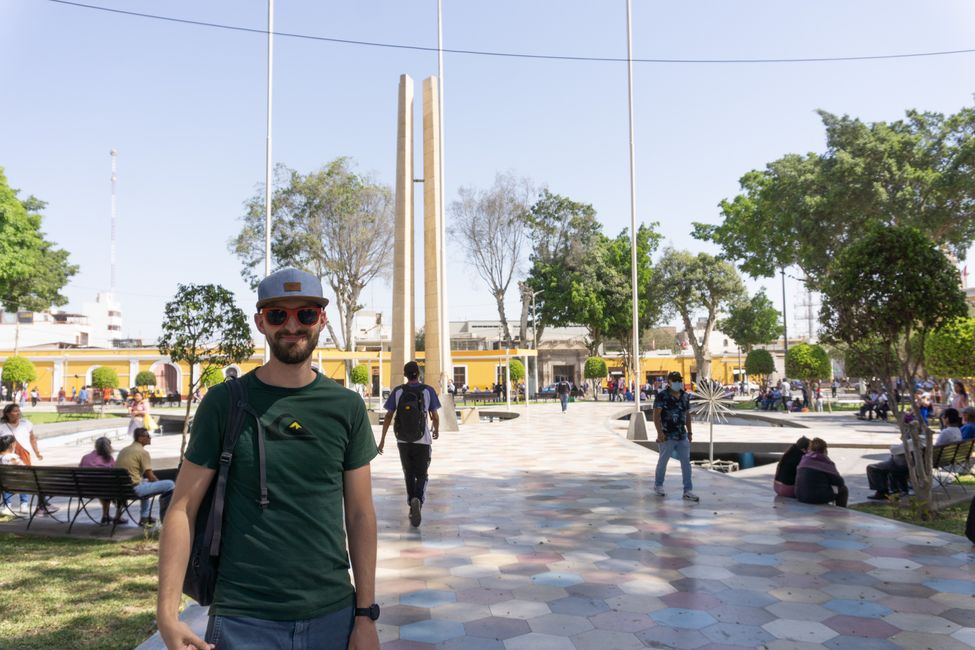
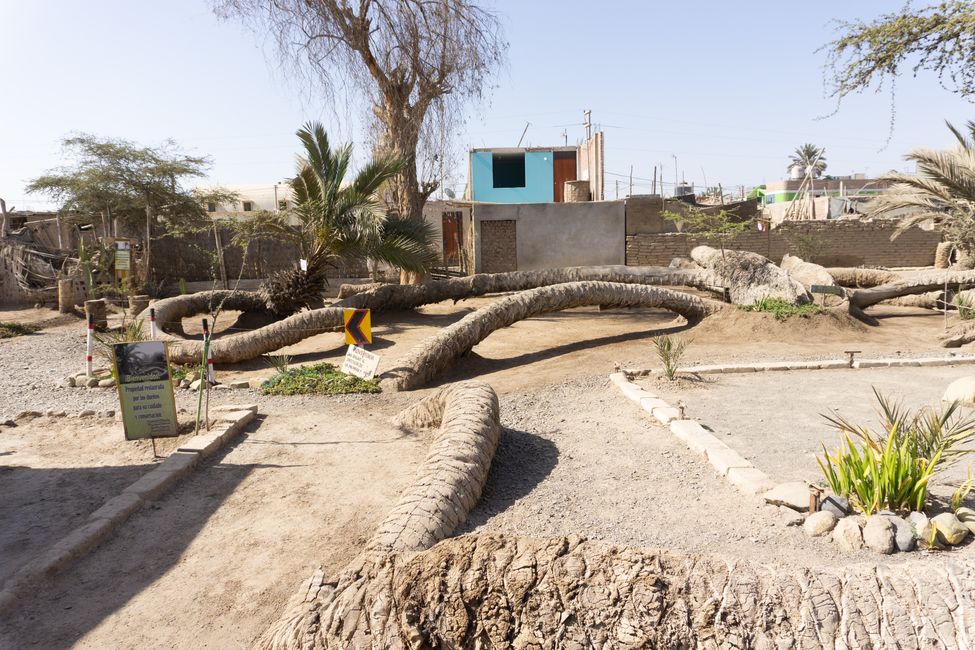
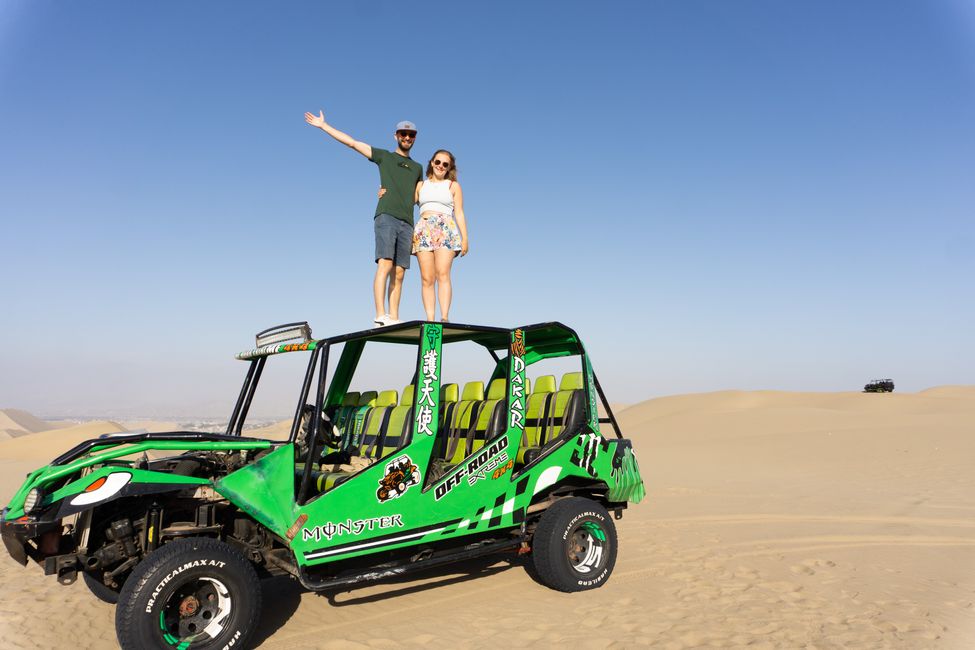
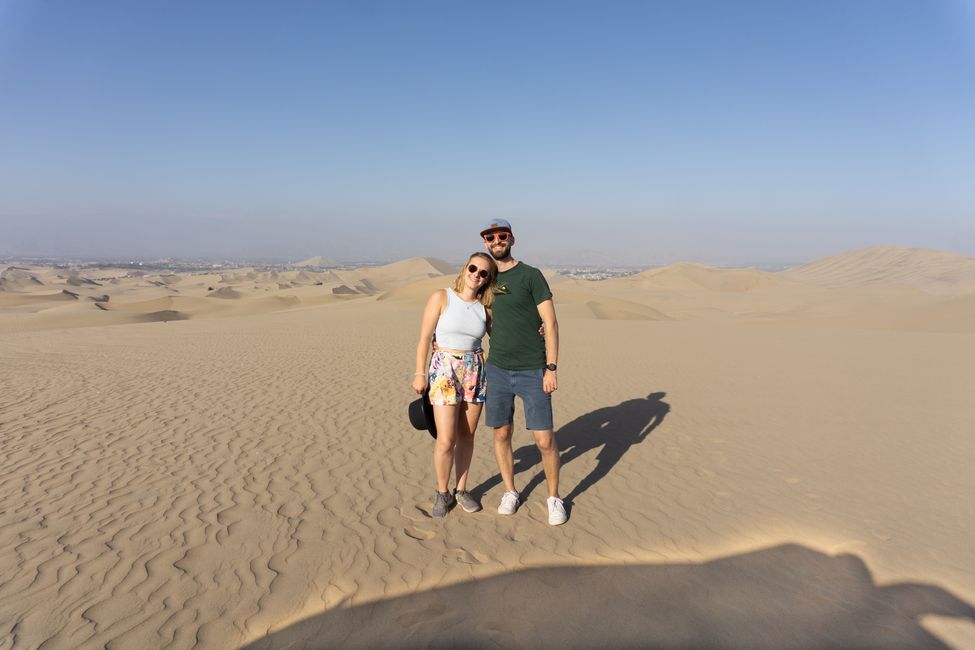
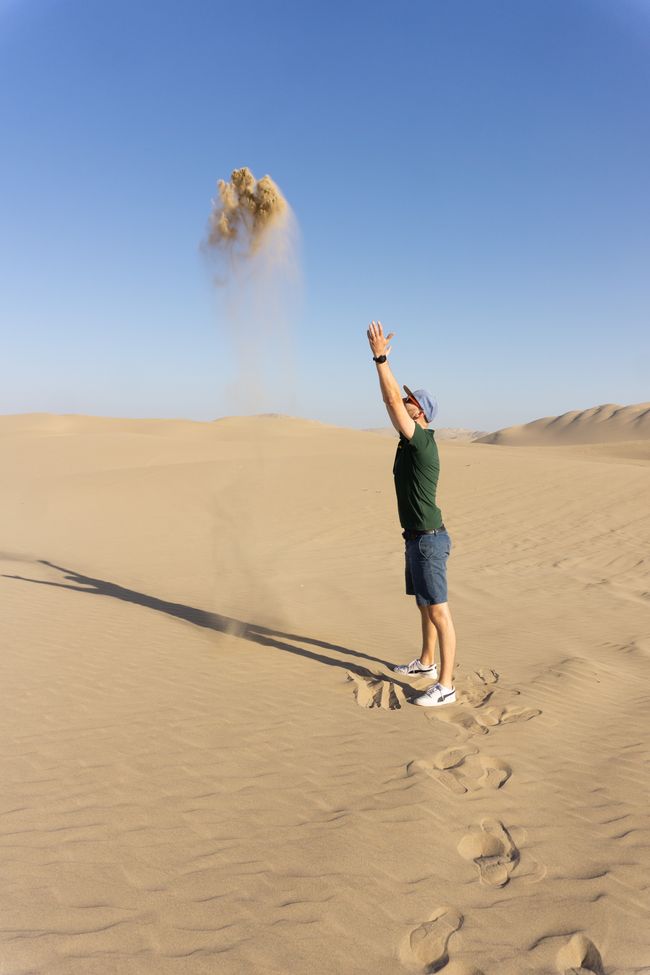
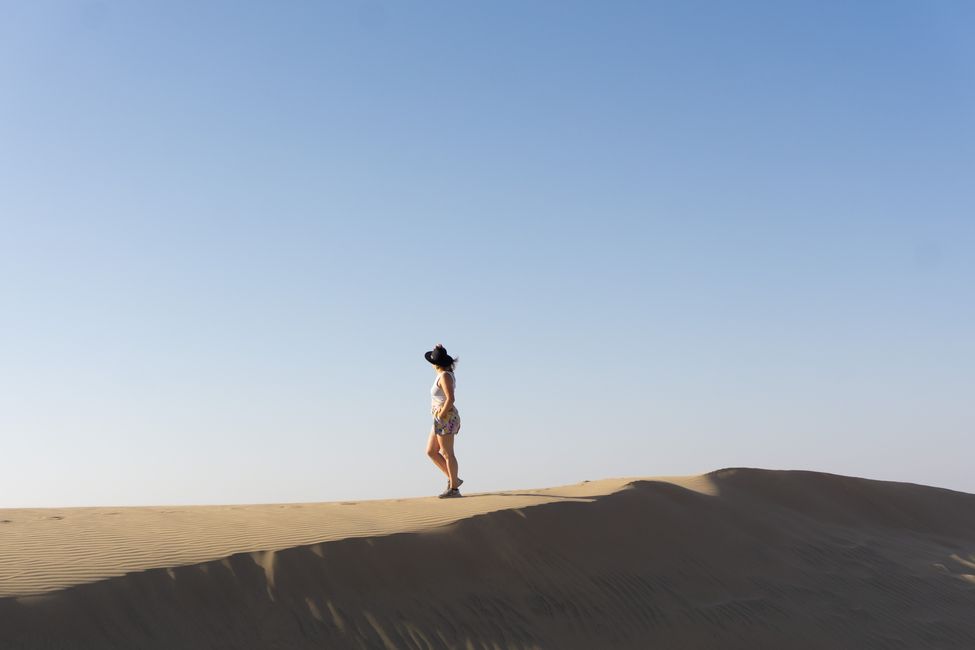
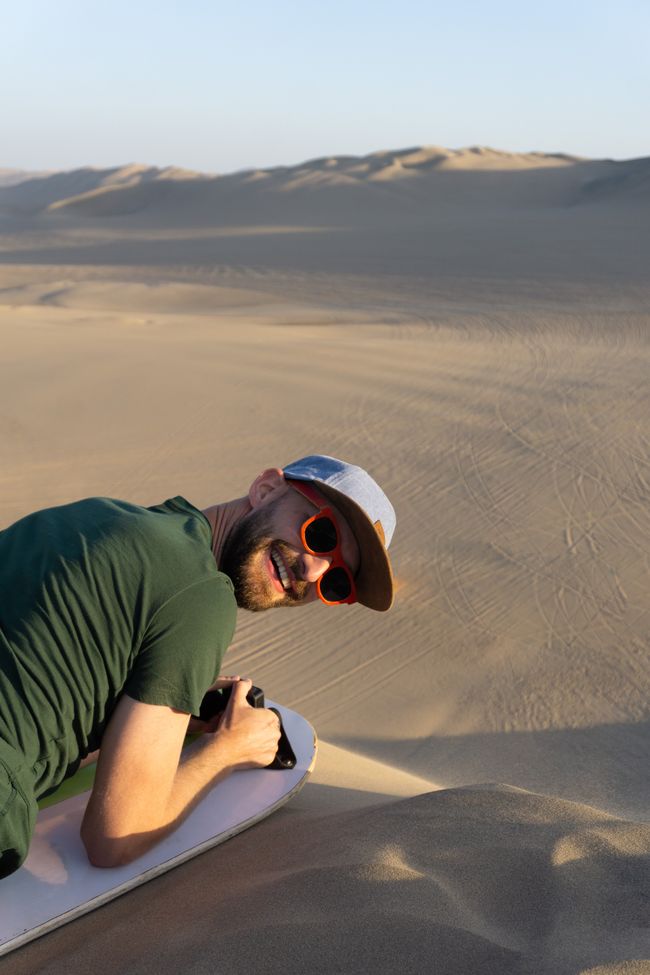
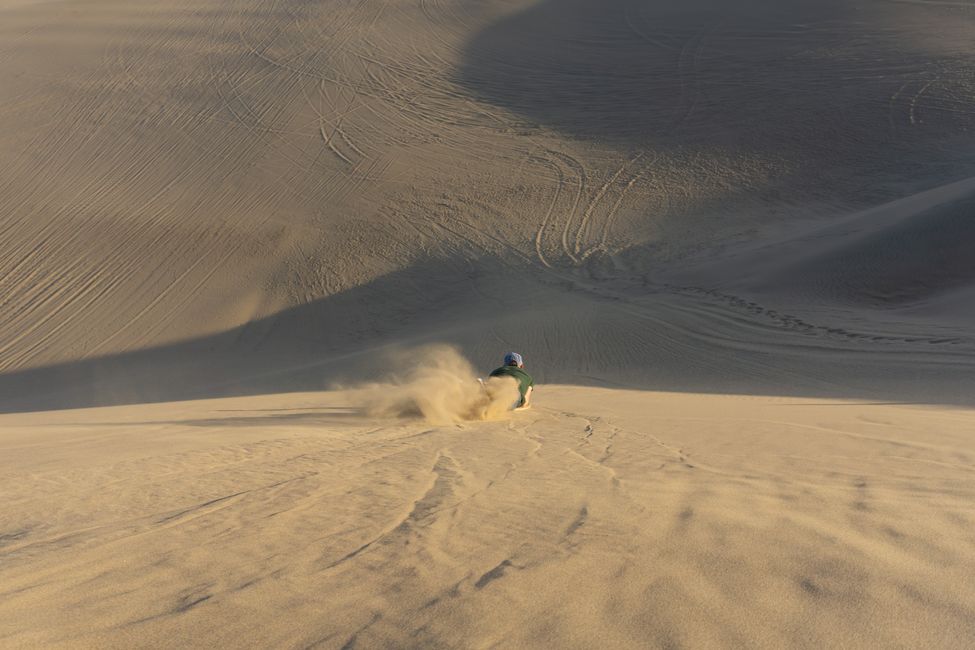
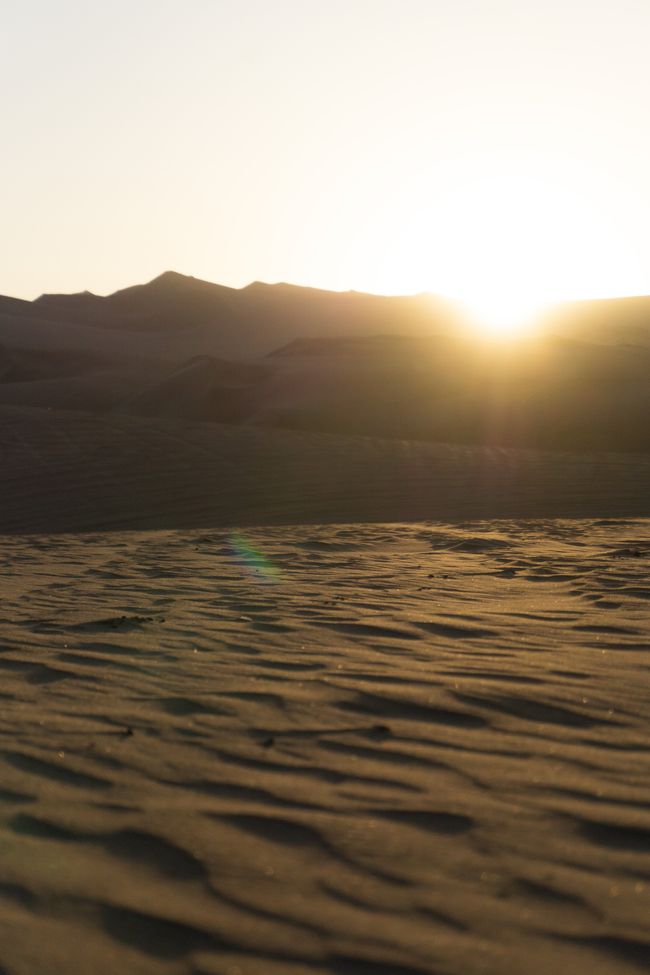
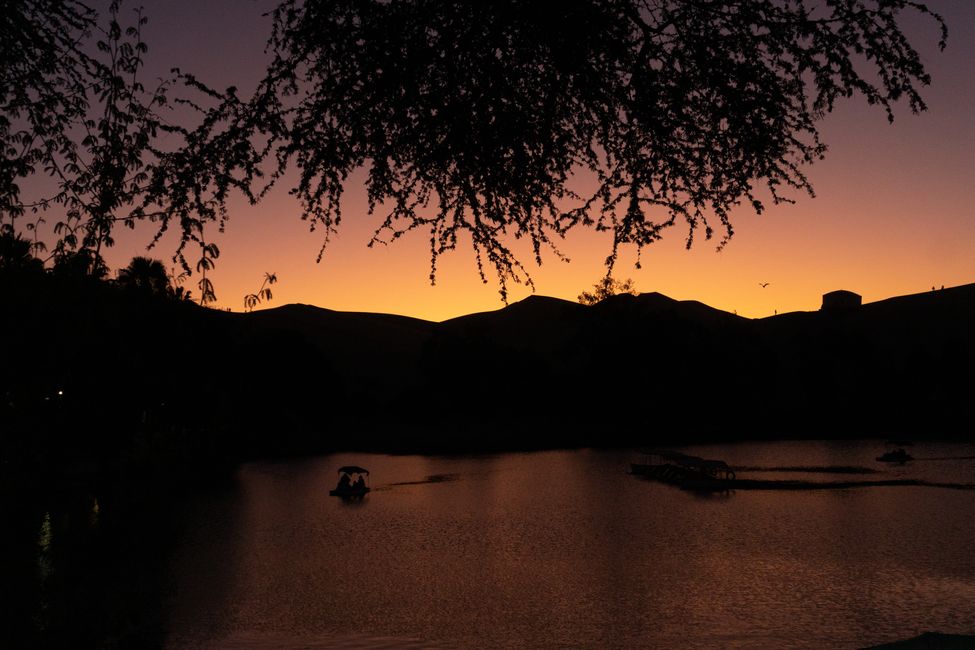
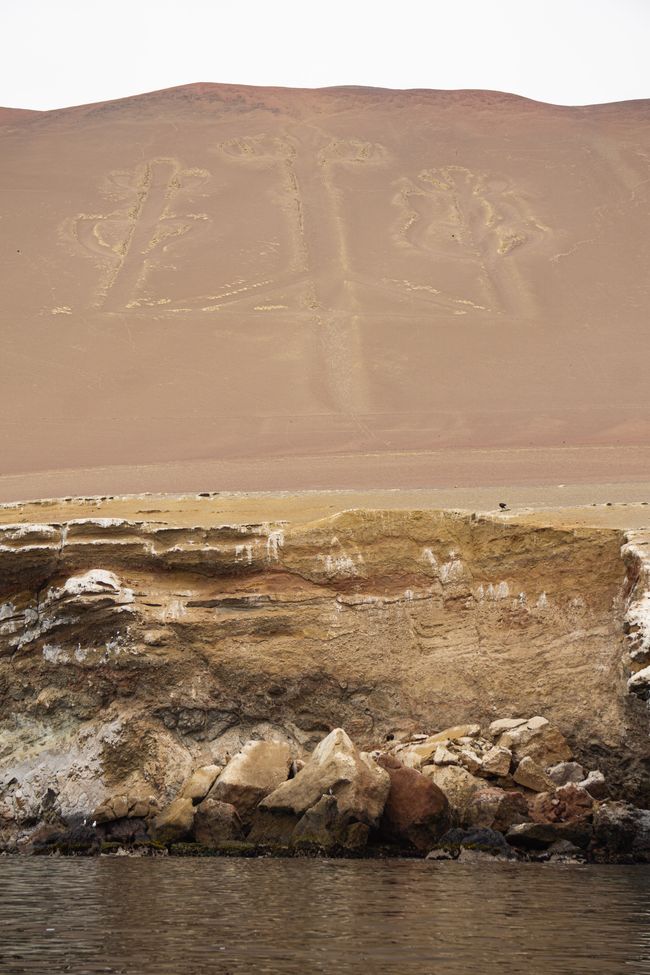
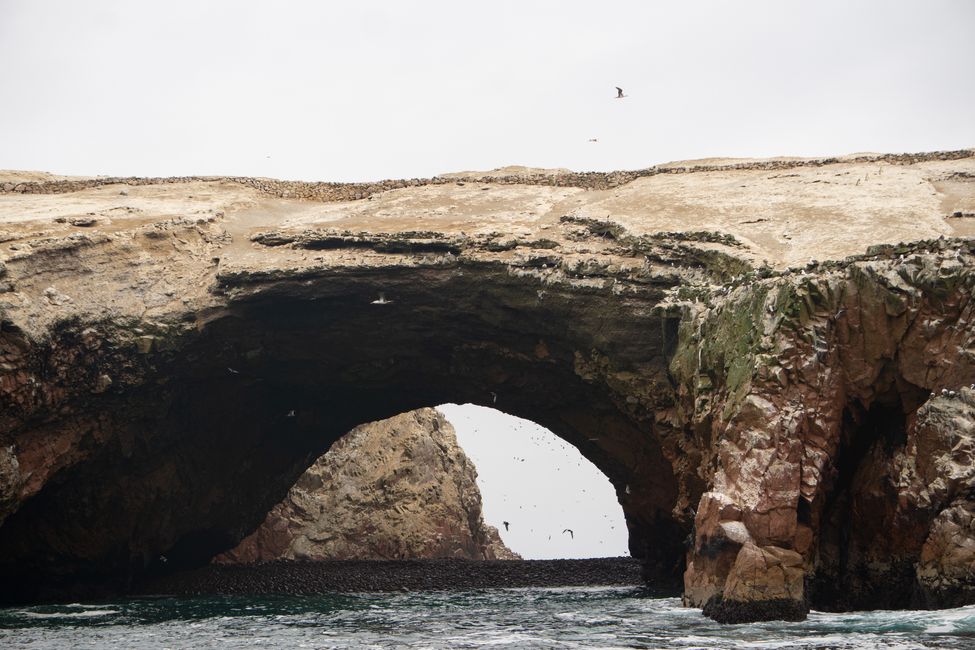
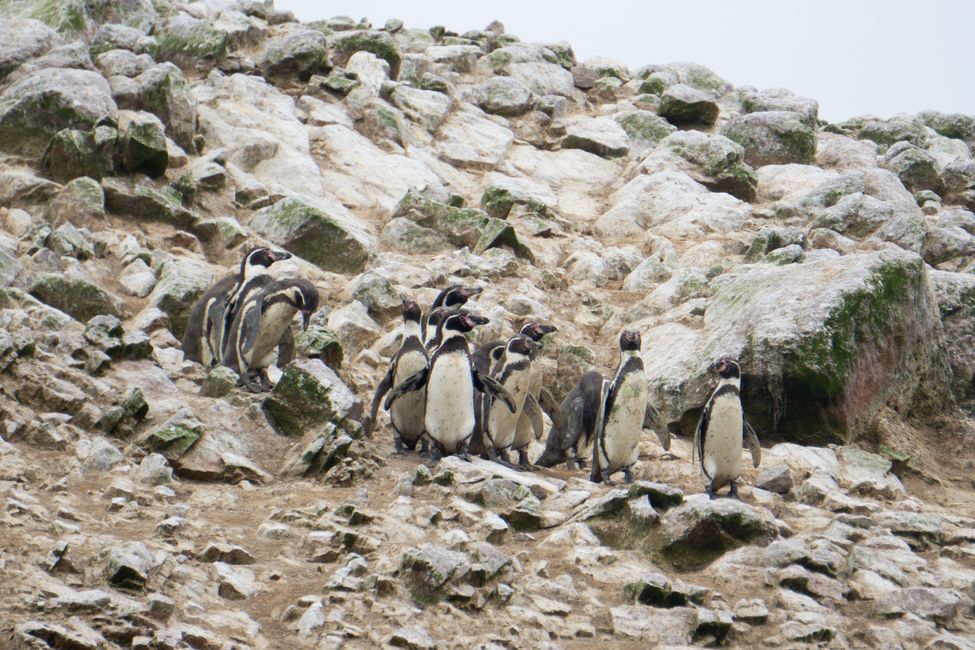
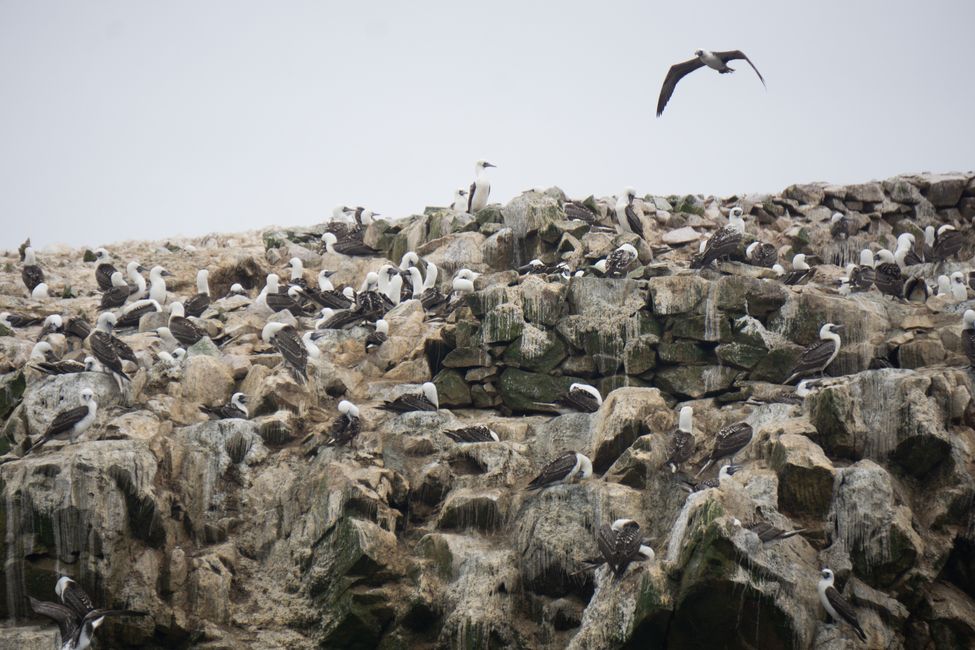
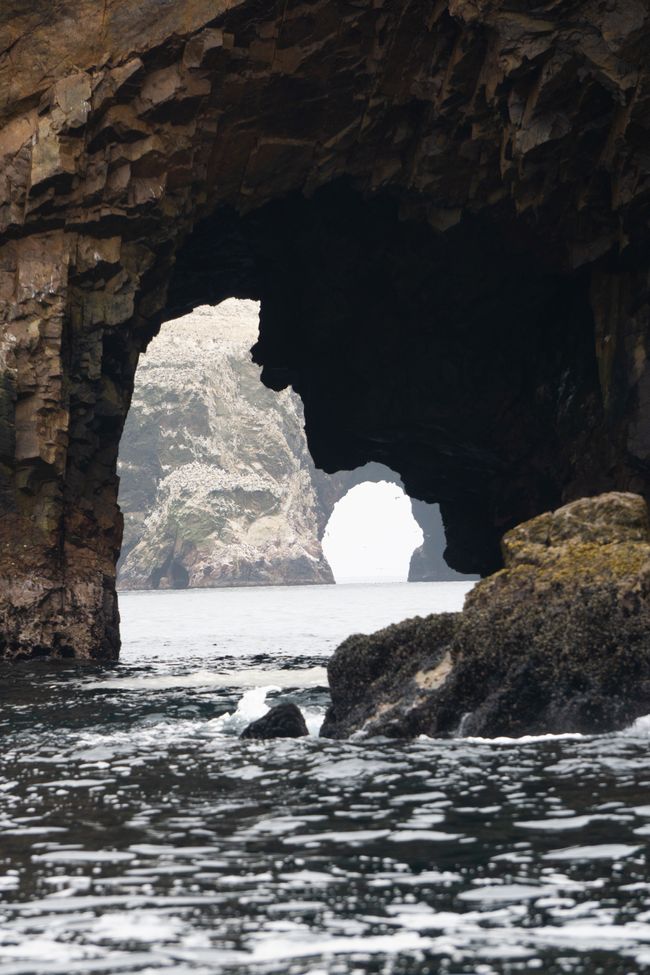
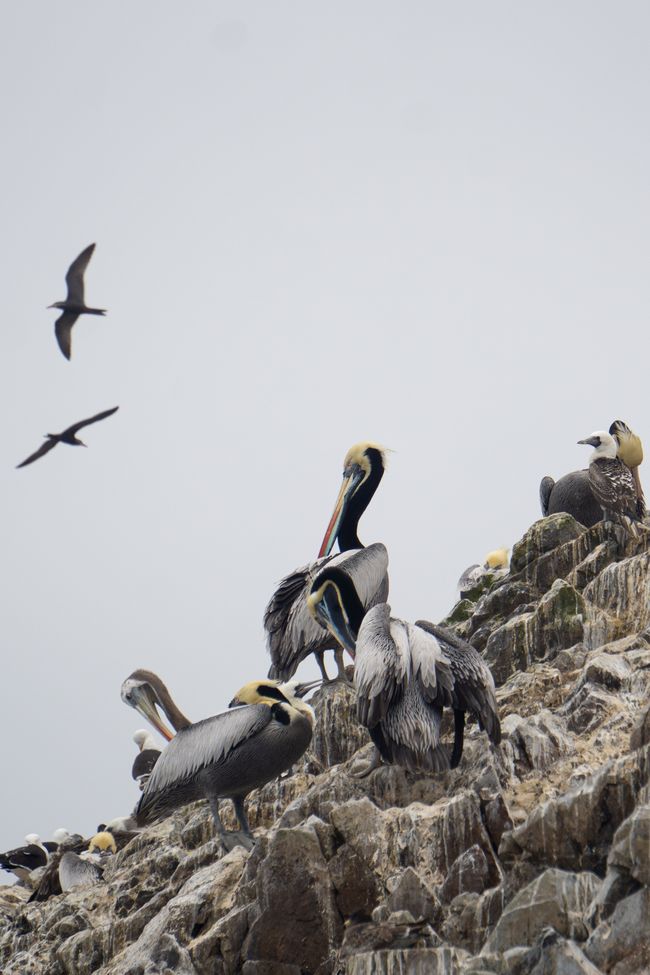
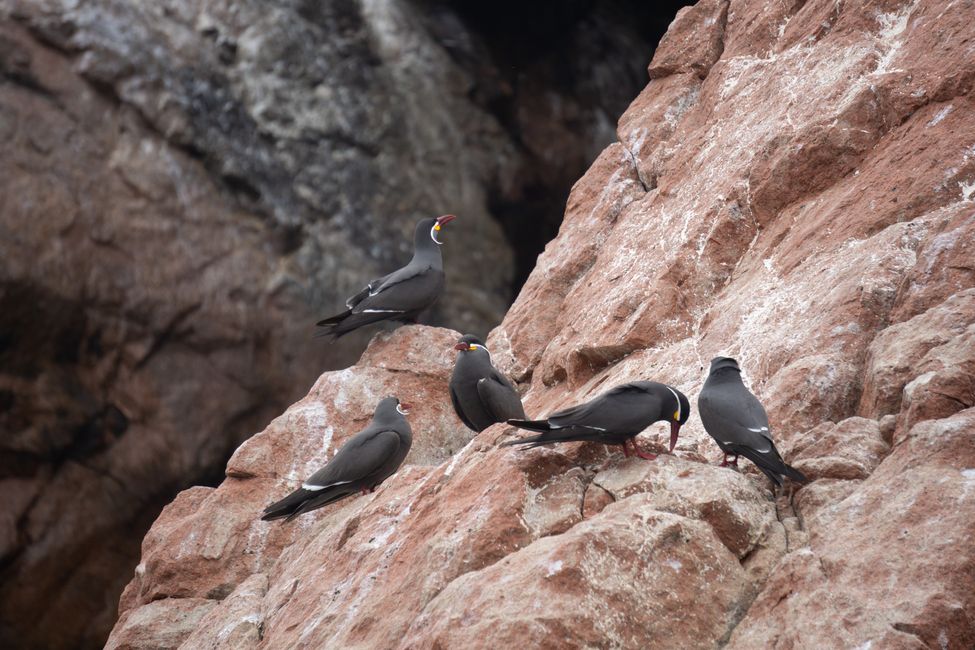
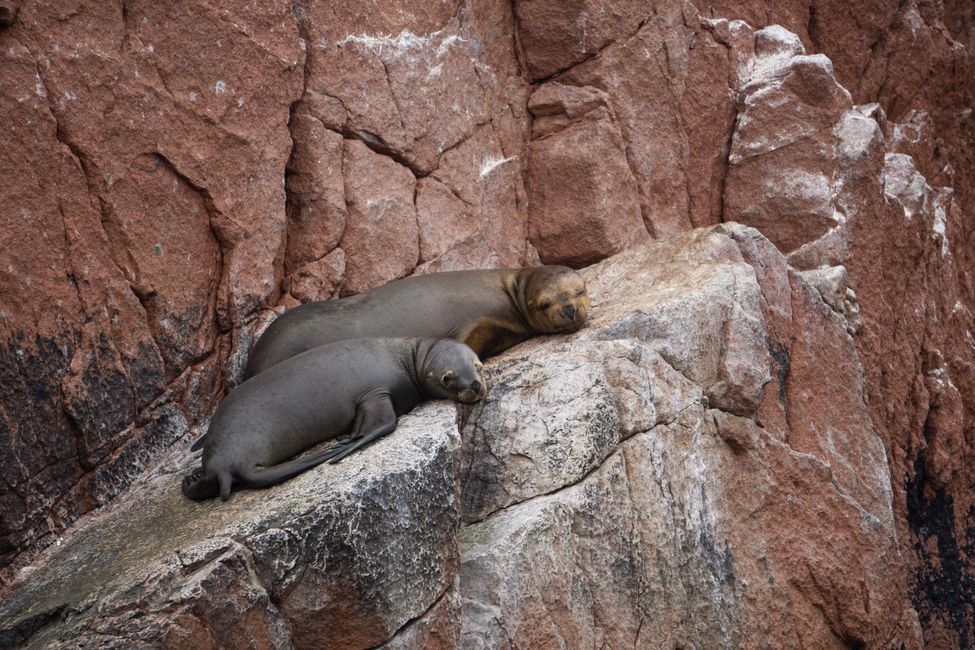
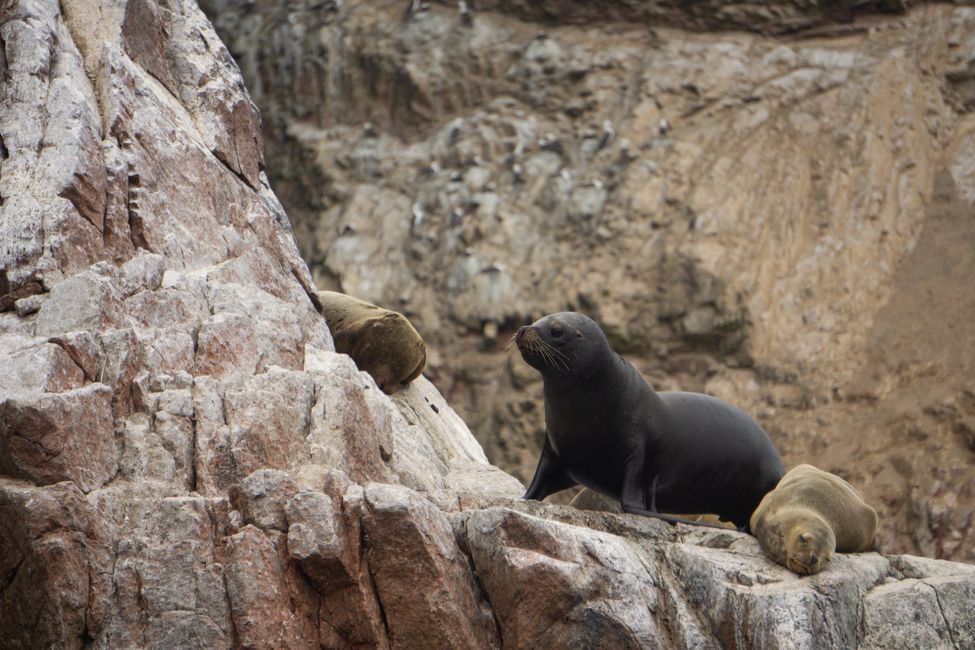
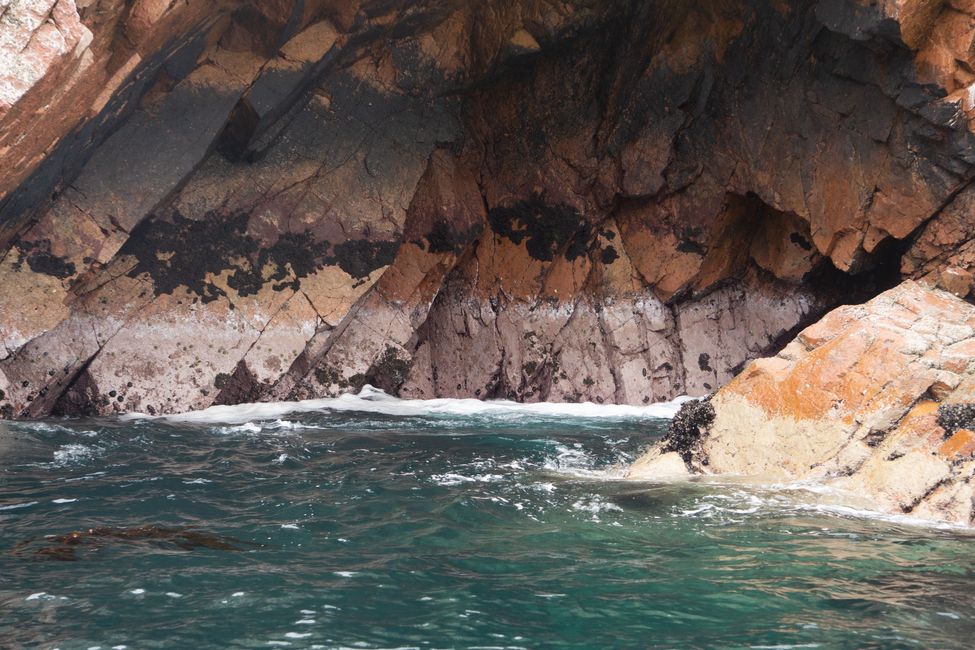
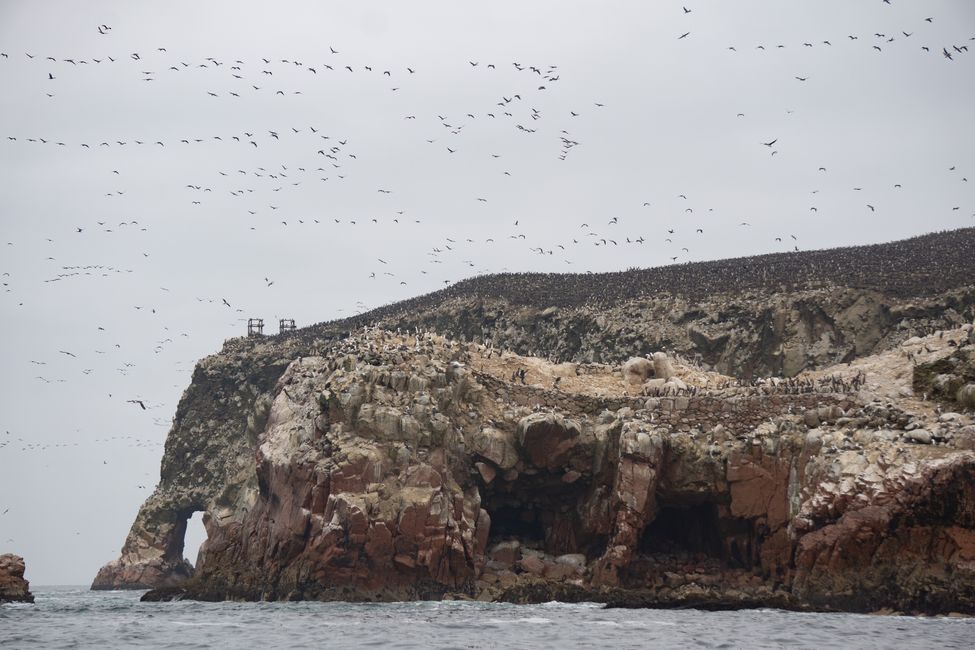
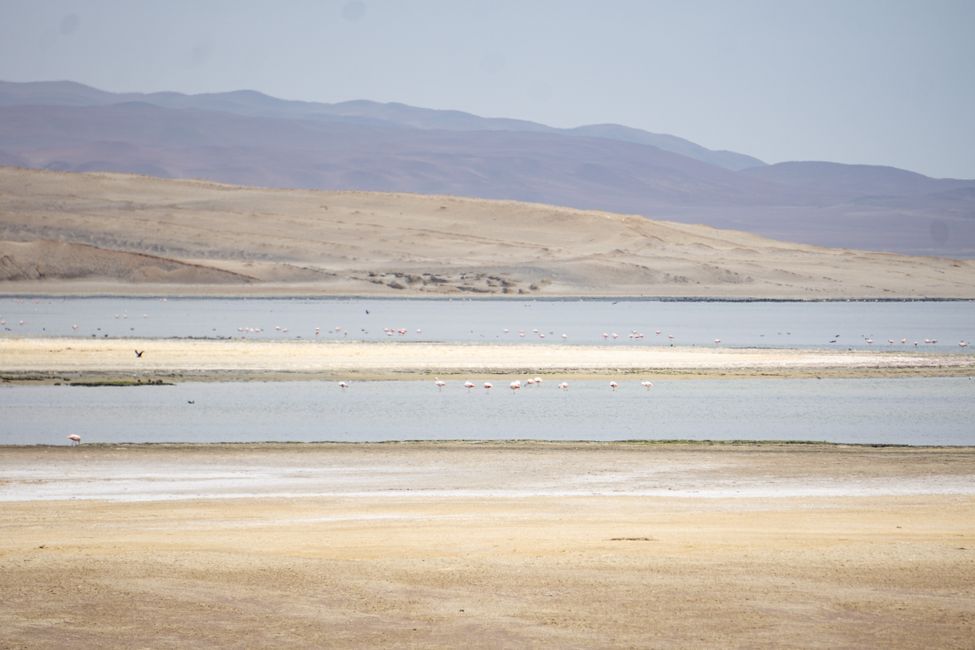
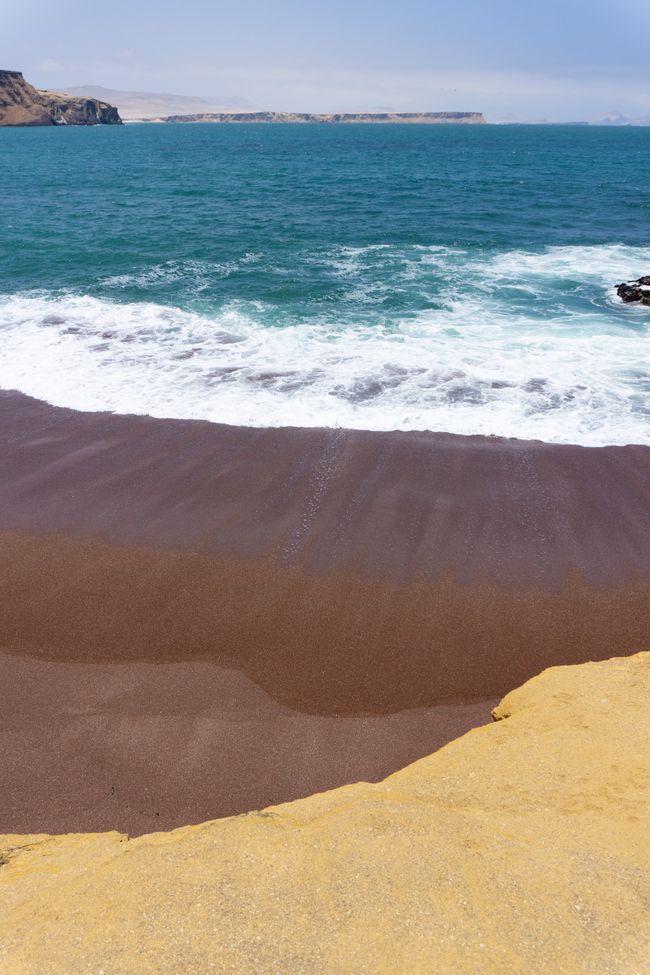
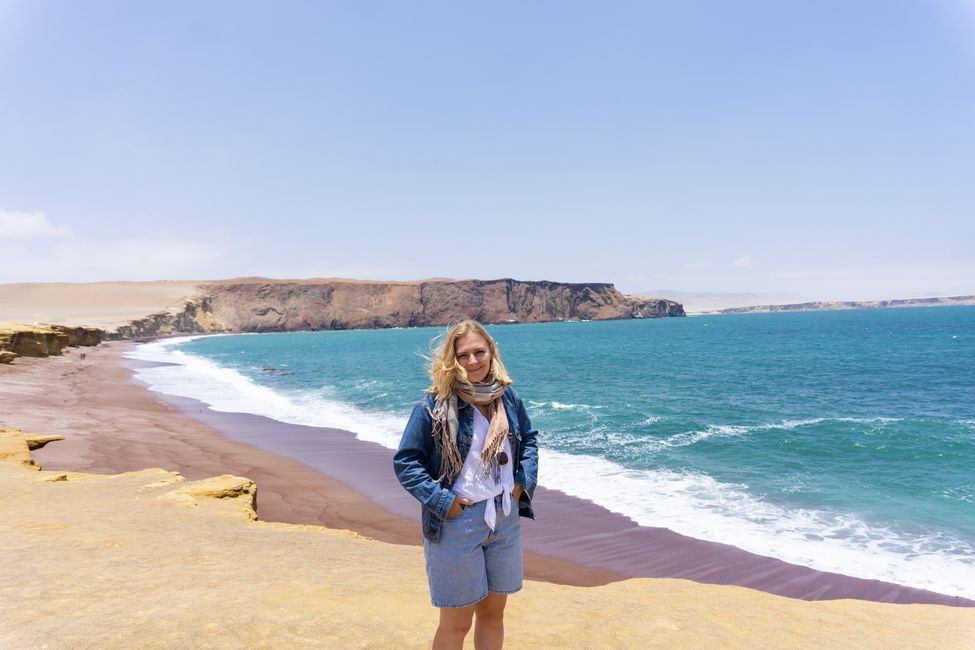
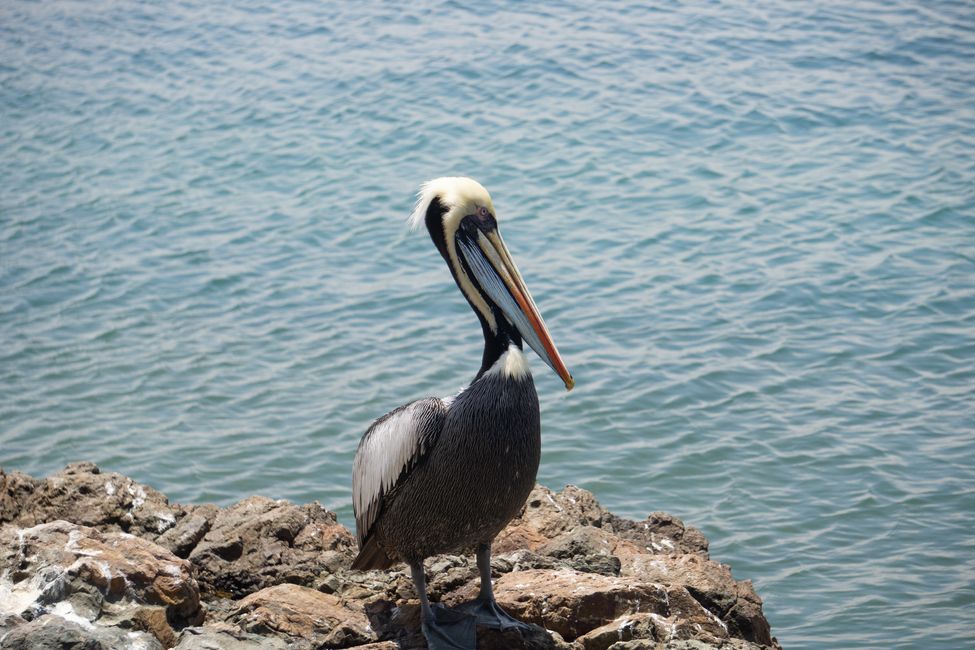
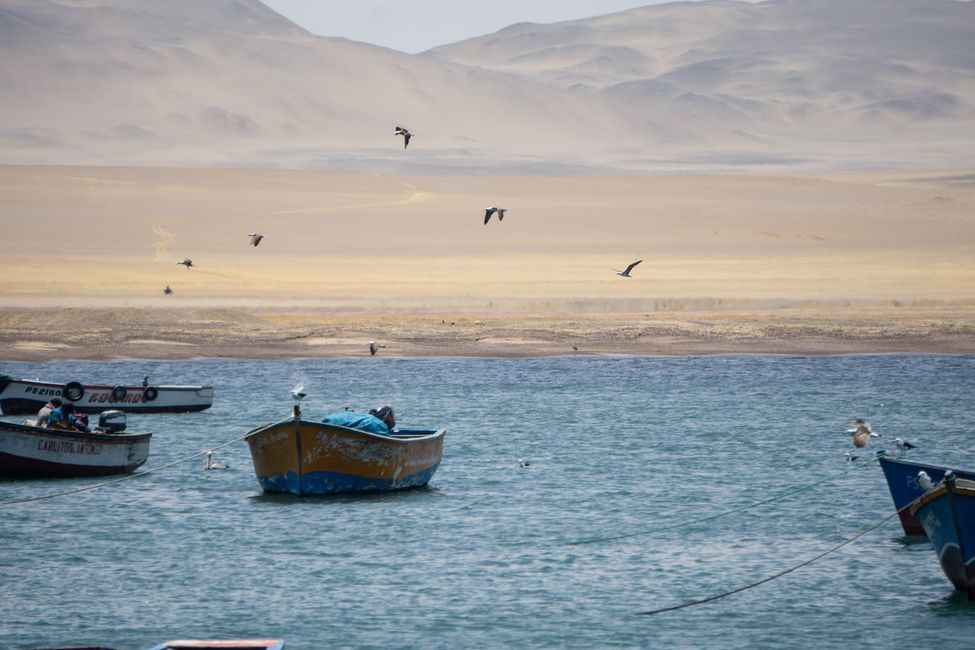
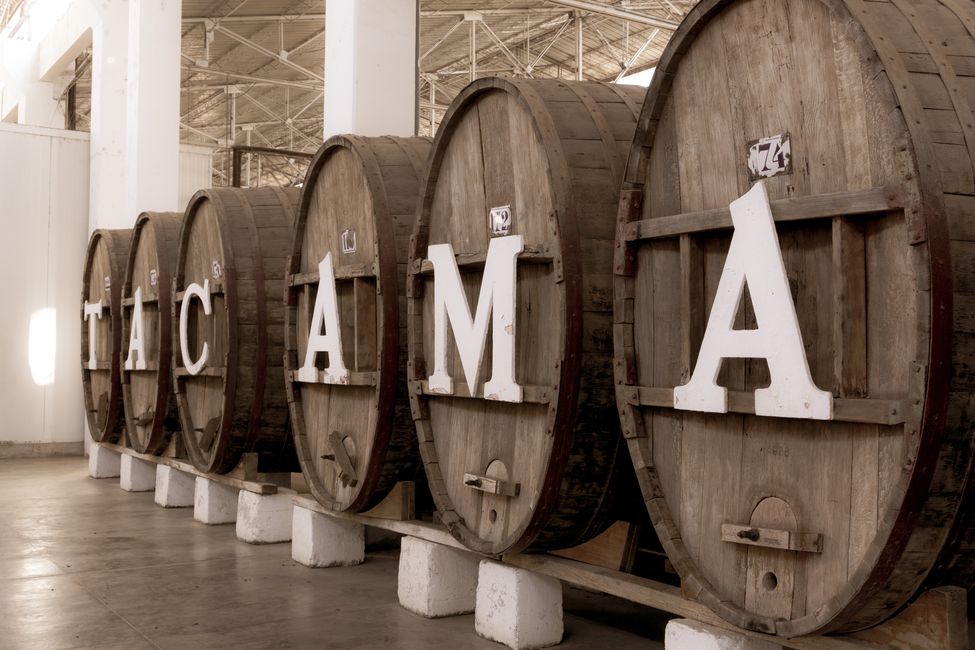
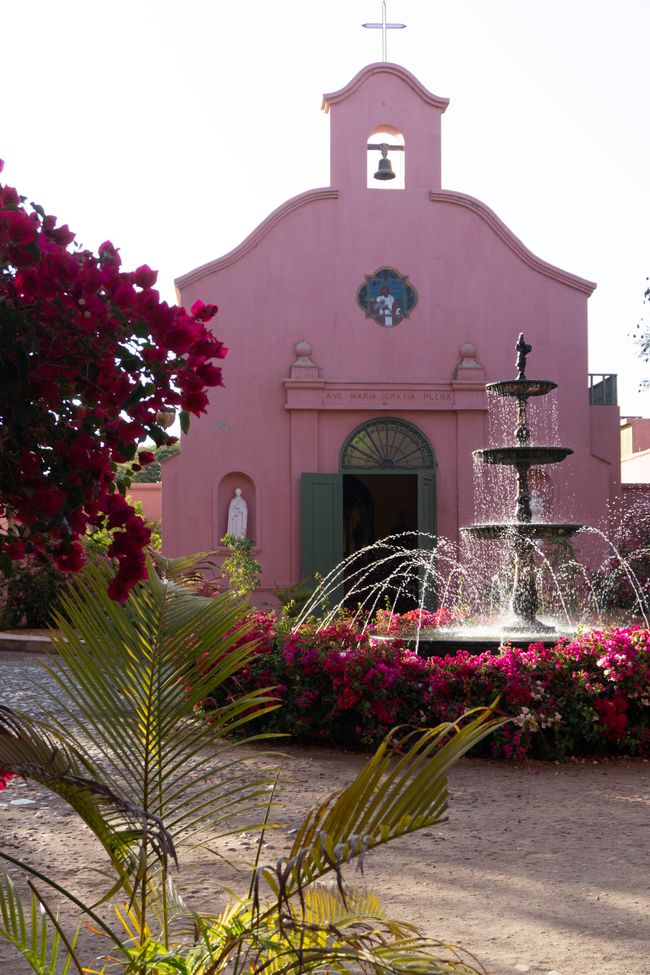
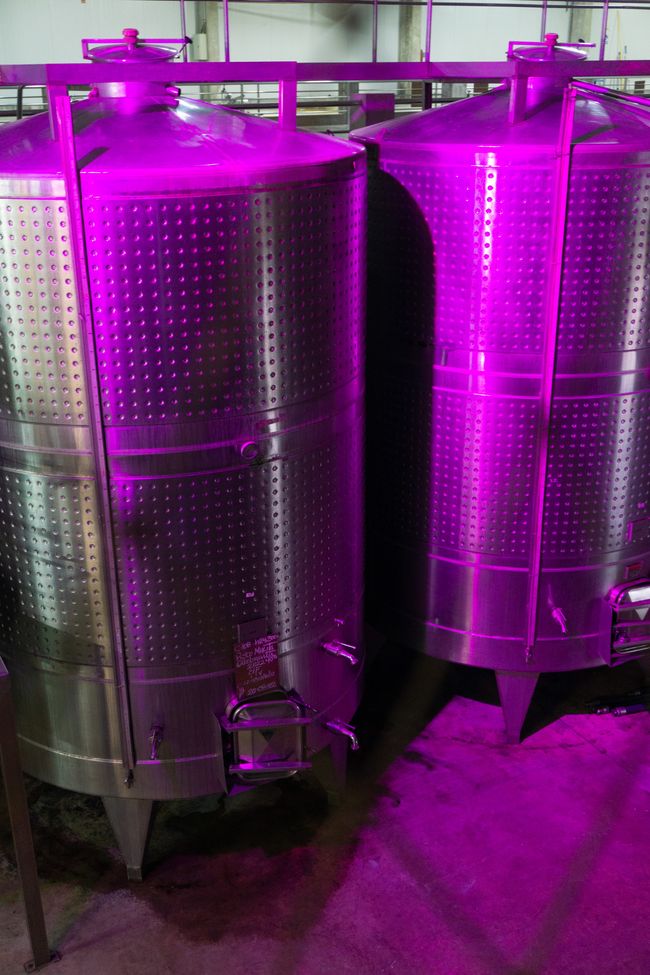
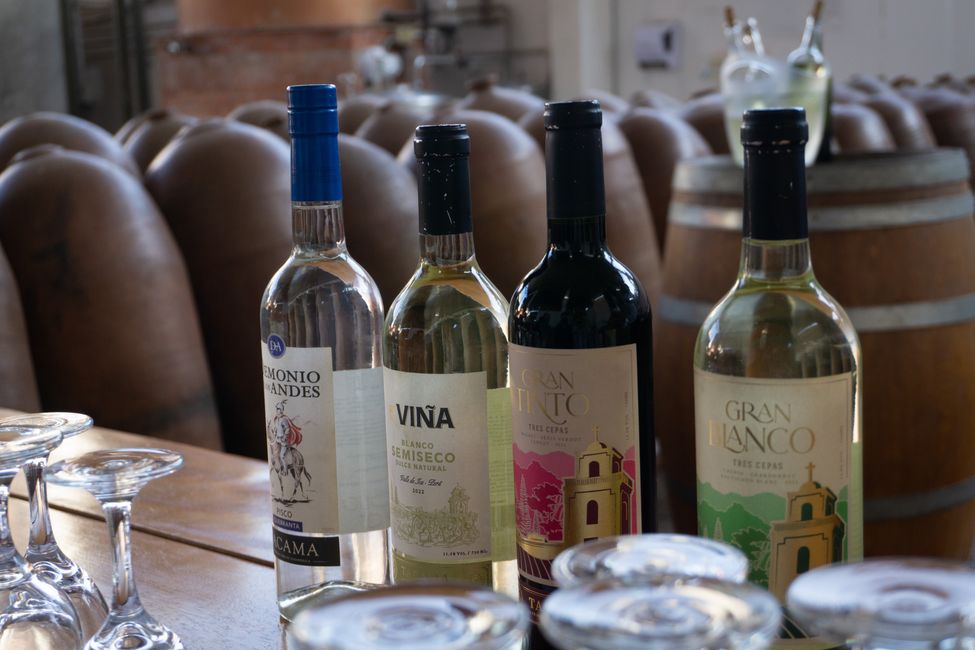
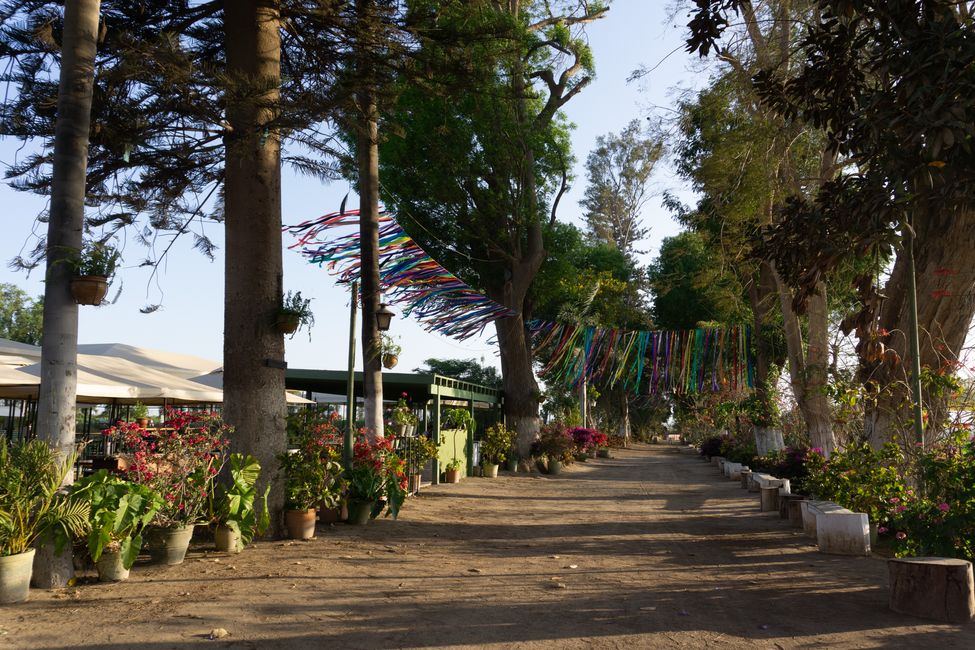
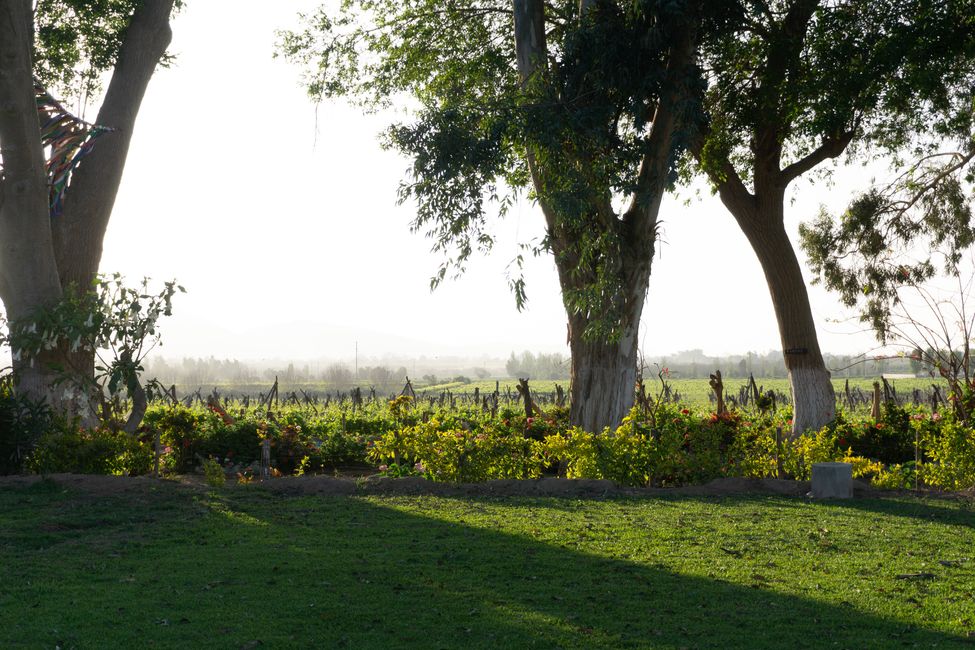
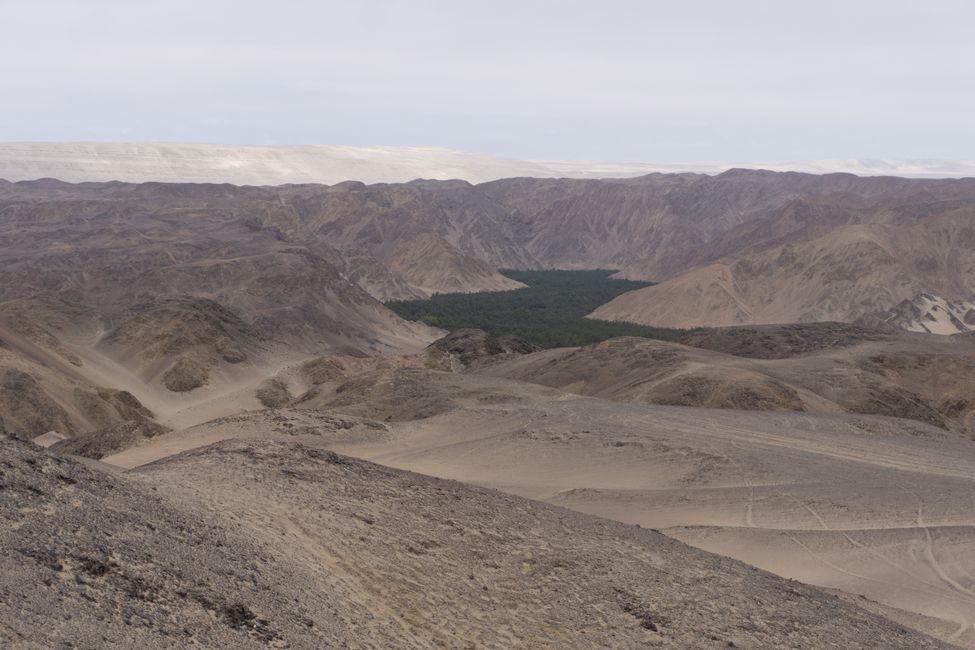
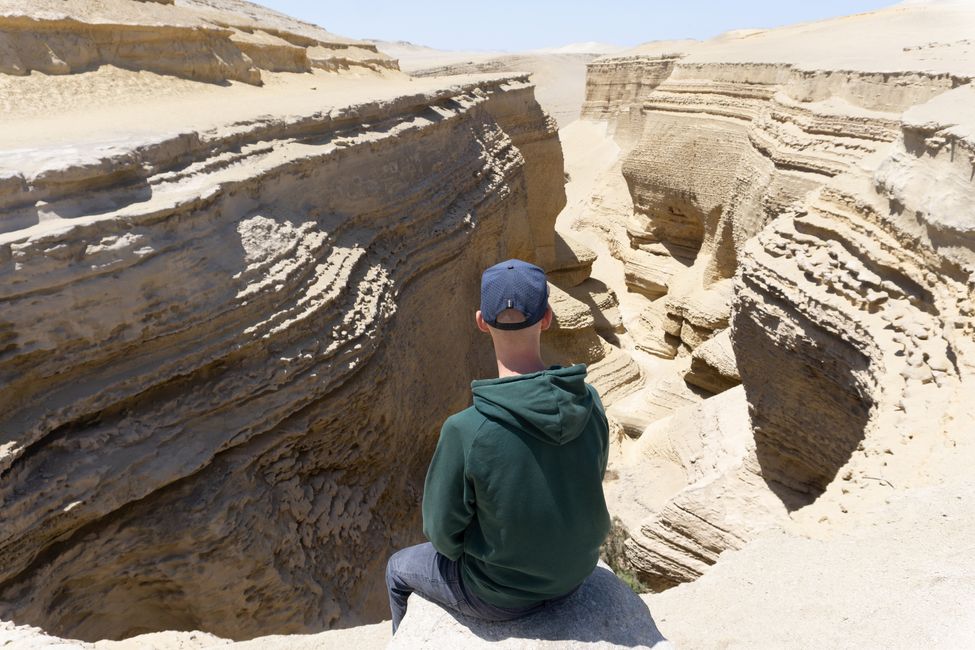
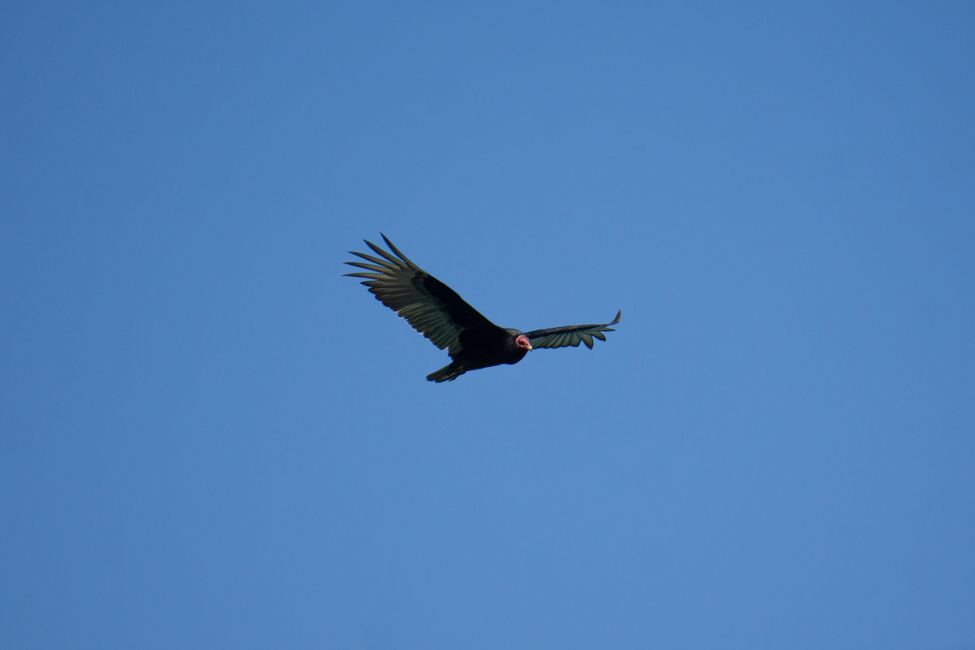
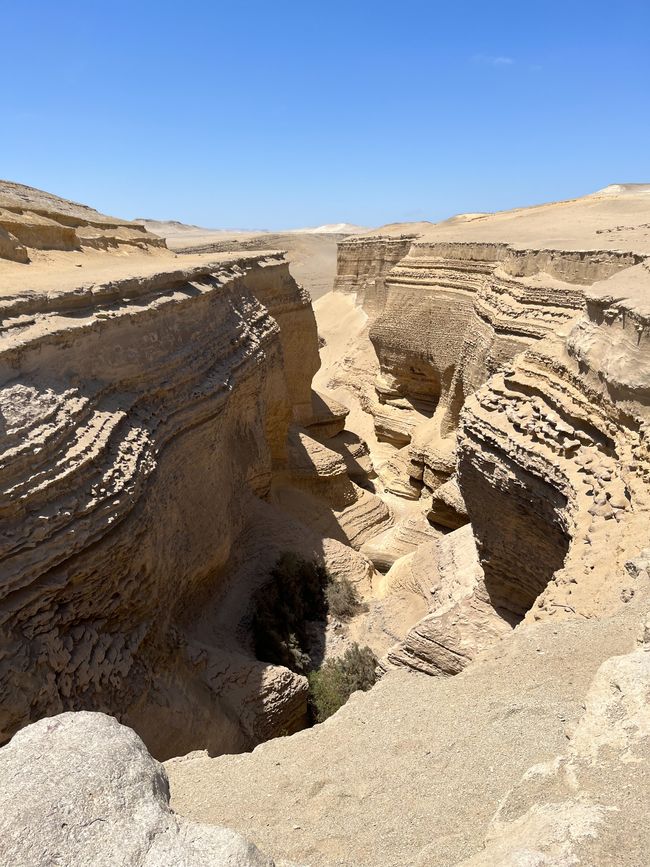
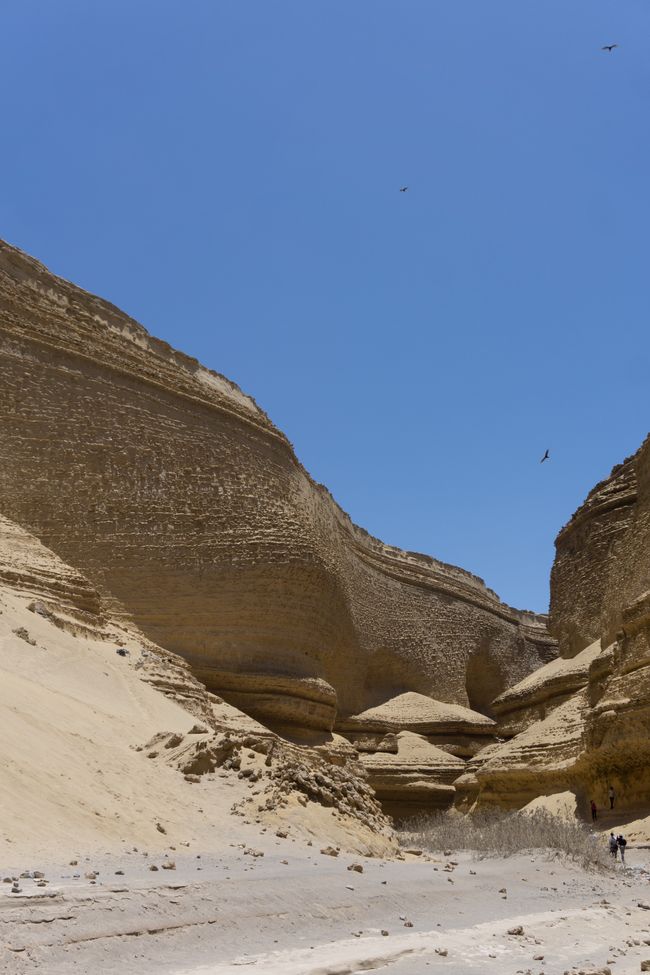
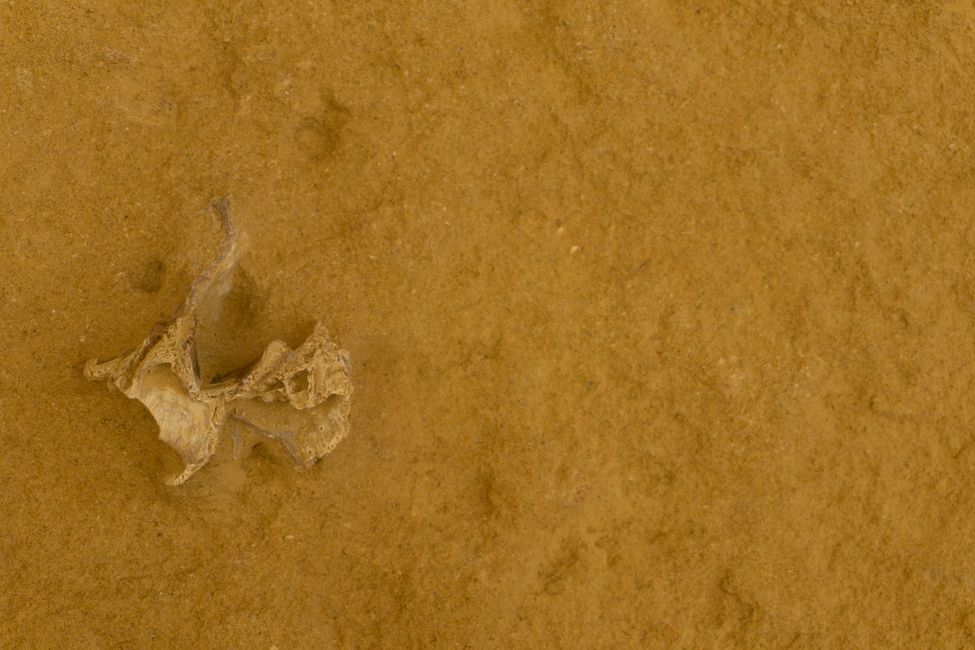
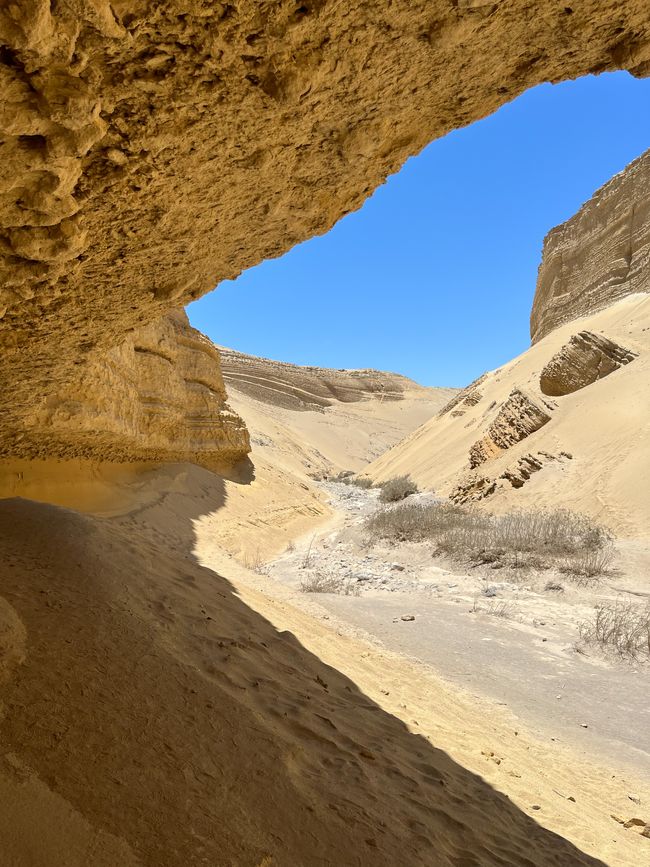
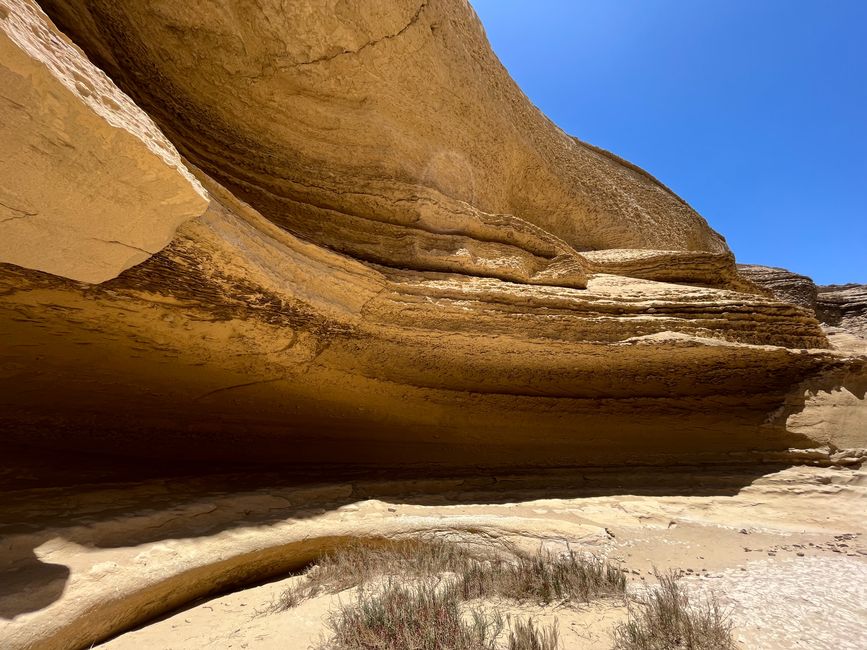
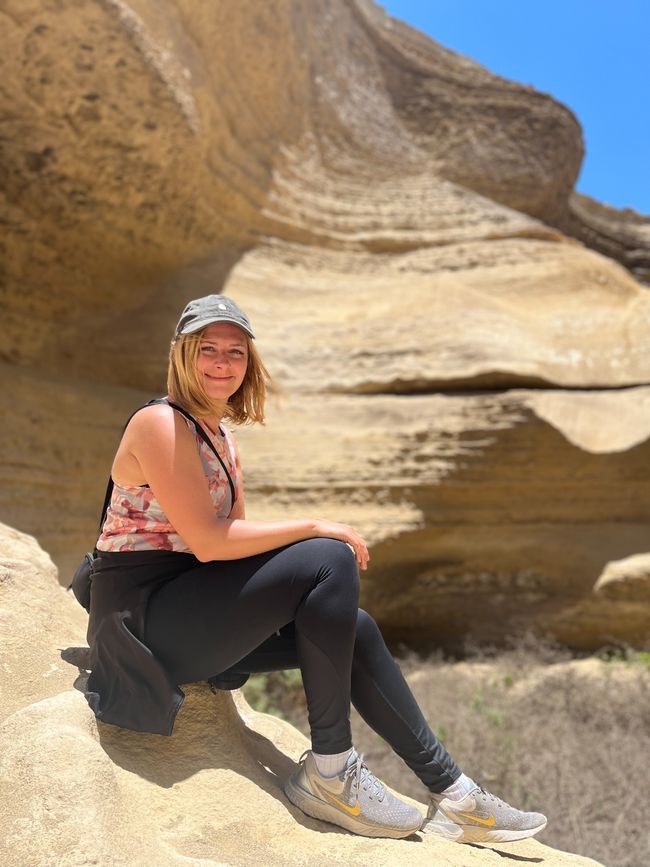
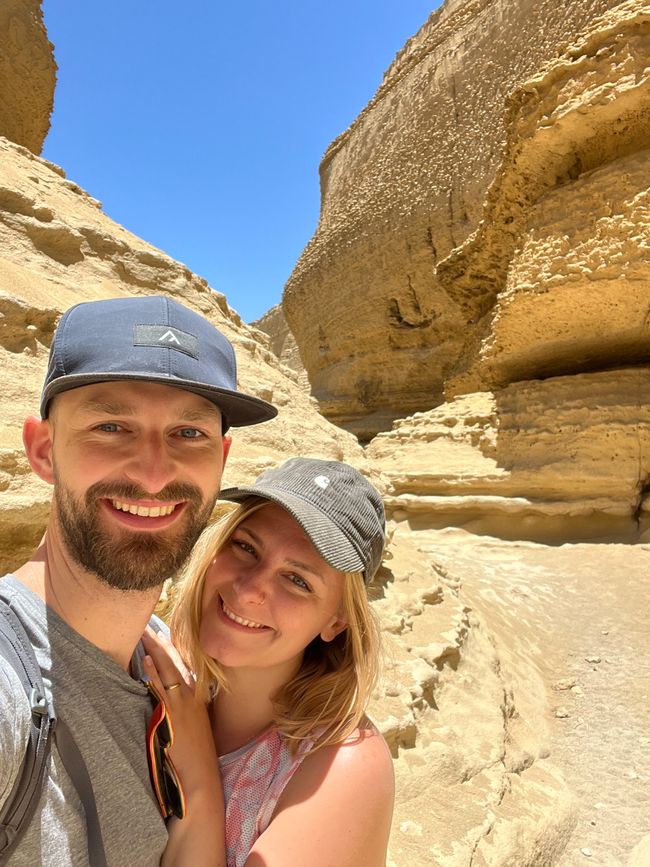
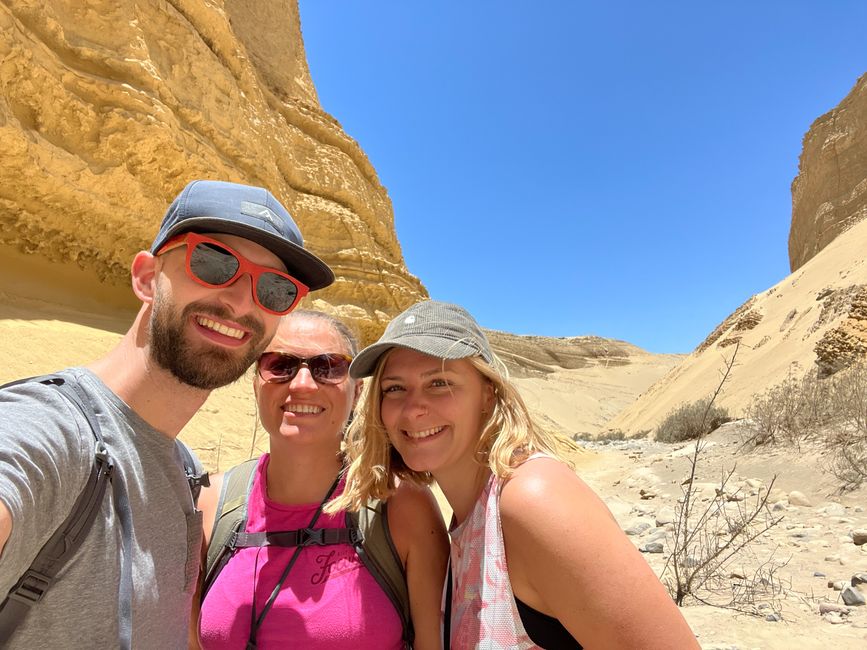
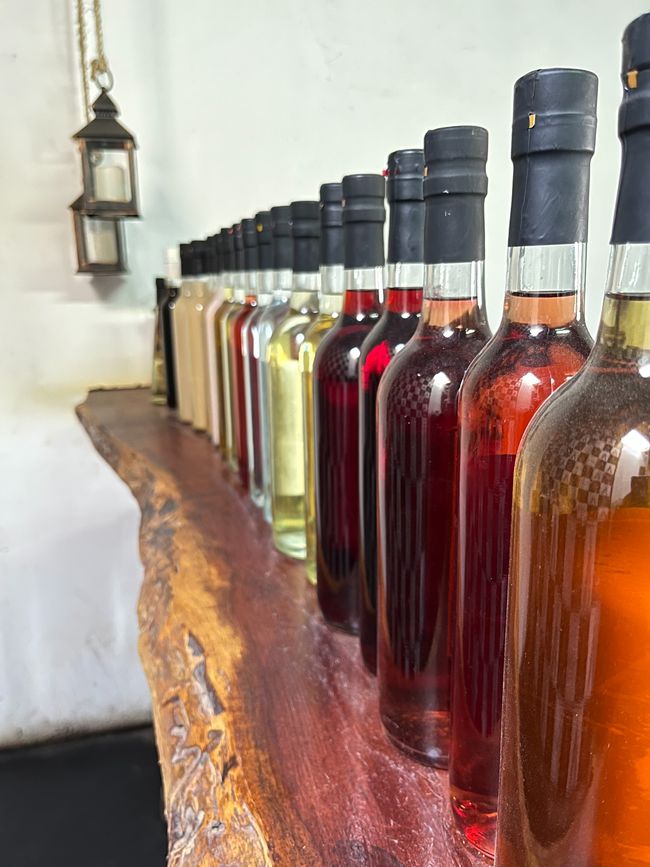
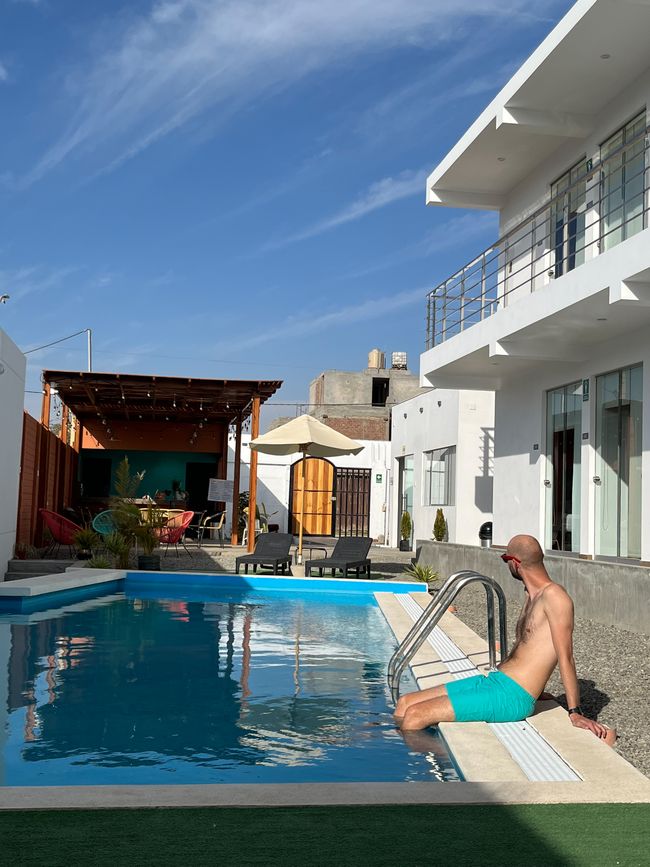
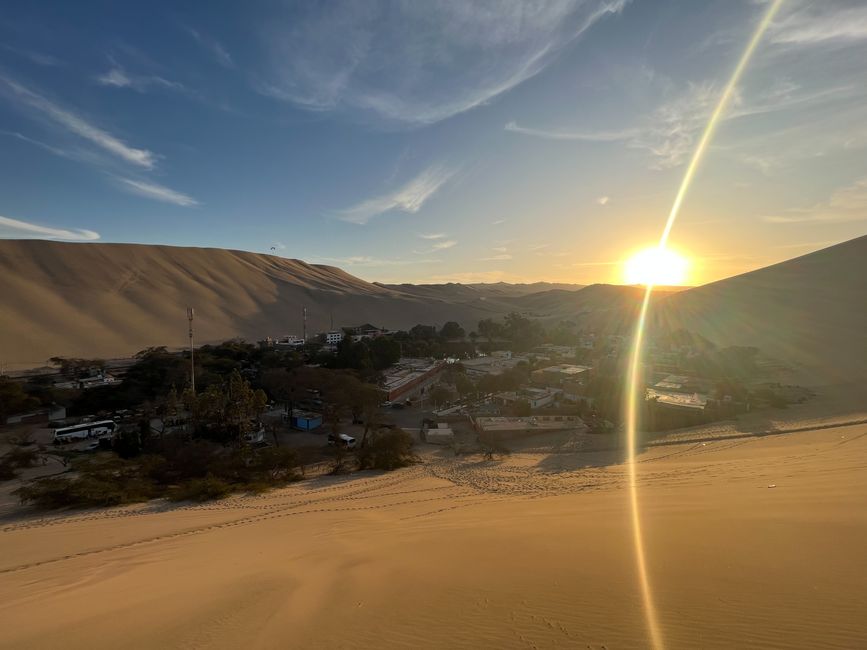
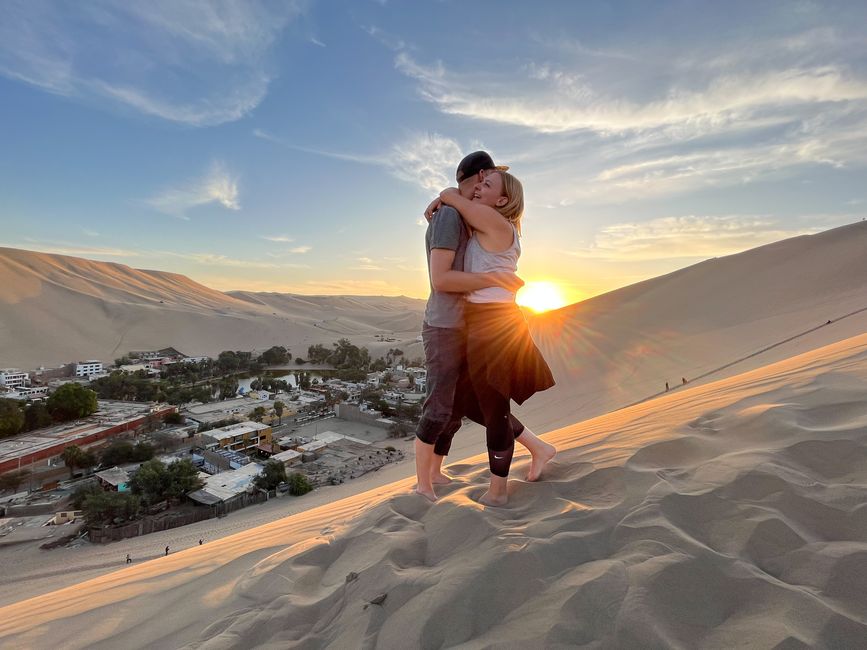

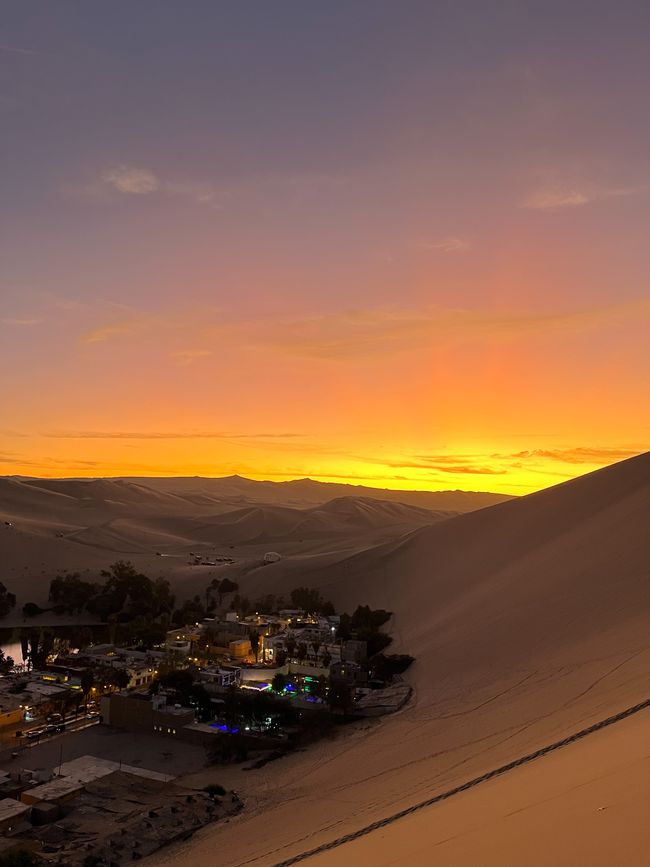
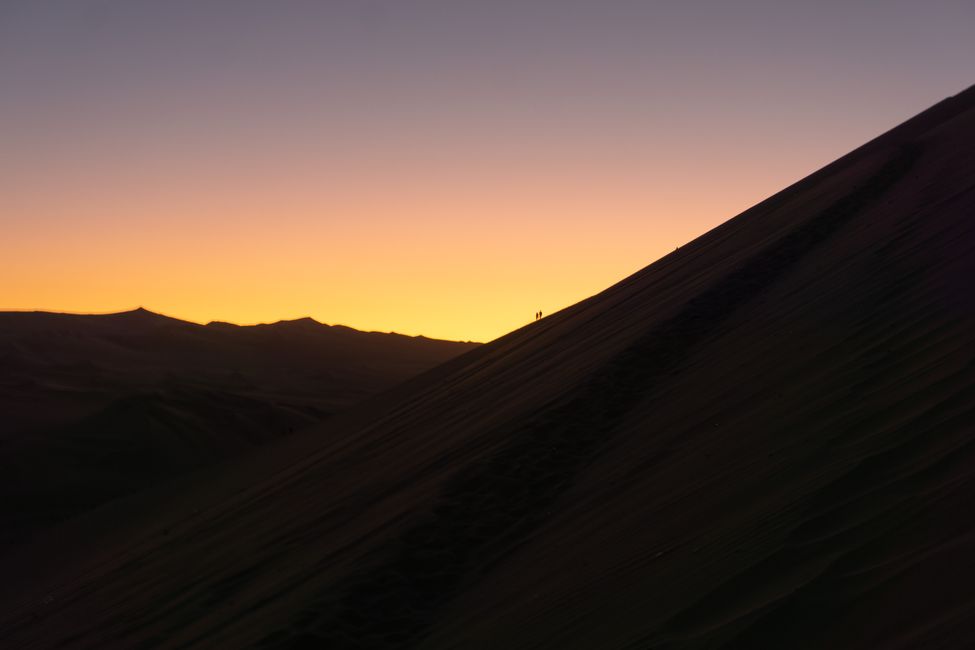
Претплатете се на билтенот
From Lima we take a bus about 4 hours south to Ica - a city in the middle of the desert. Despite being in the desert, there is enough water here to support agriculture in and around Ica and the small oasis of Huacachina, thanks to a river that comes from the mountains.
On our first day, we take a quick look around the city, but there isn't much to see. The main attractions are a small Plaza Mayor with some restaurants and cafes, and a seven-headed palm tree in a district a bit outside the city.
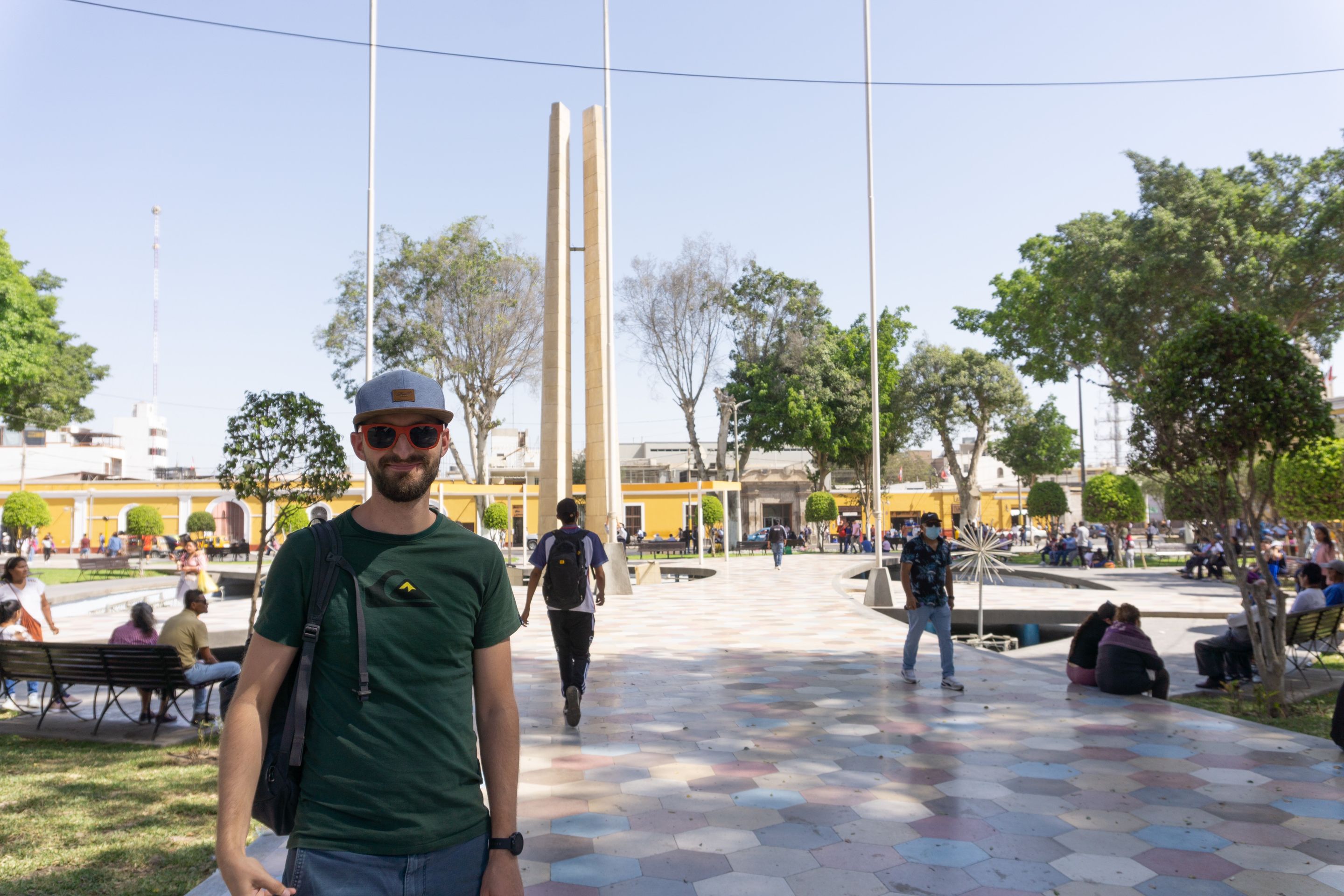
Much more interesting and touristy is Huacachina. From the oasis, we take a two-hour sand buggy tour through the dunes, which is similar to a roller coaster ride and includes sandboarding. The high and steep dunes are perfect for sandboarding, and Carsten rushes down the slope lying on the board. However, the subsequent climb through the sand (which gets everywhere) is quite exhausting! As the sun sets, it bathes the sand in beautiful light. Back in Huacachina, we have dinner with the French couple from our language school, with whom we try to speak only Spanish.
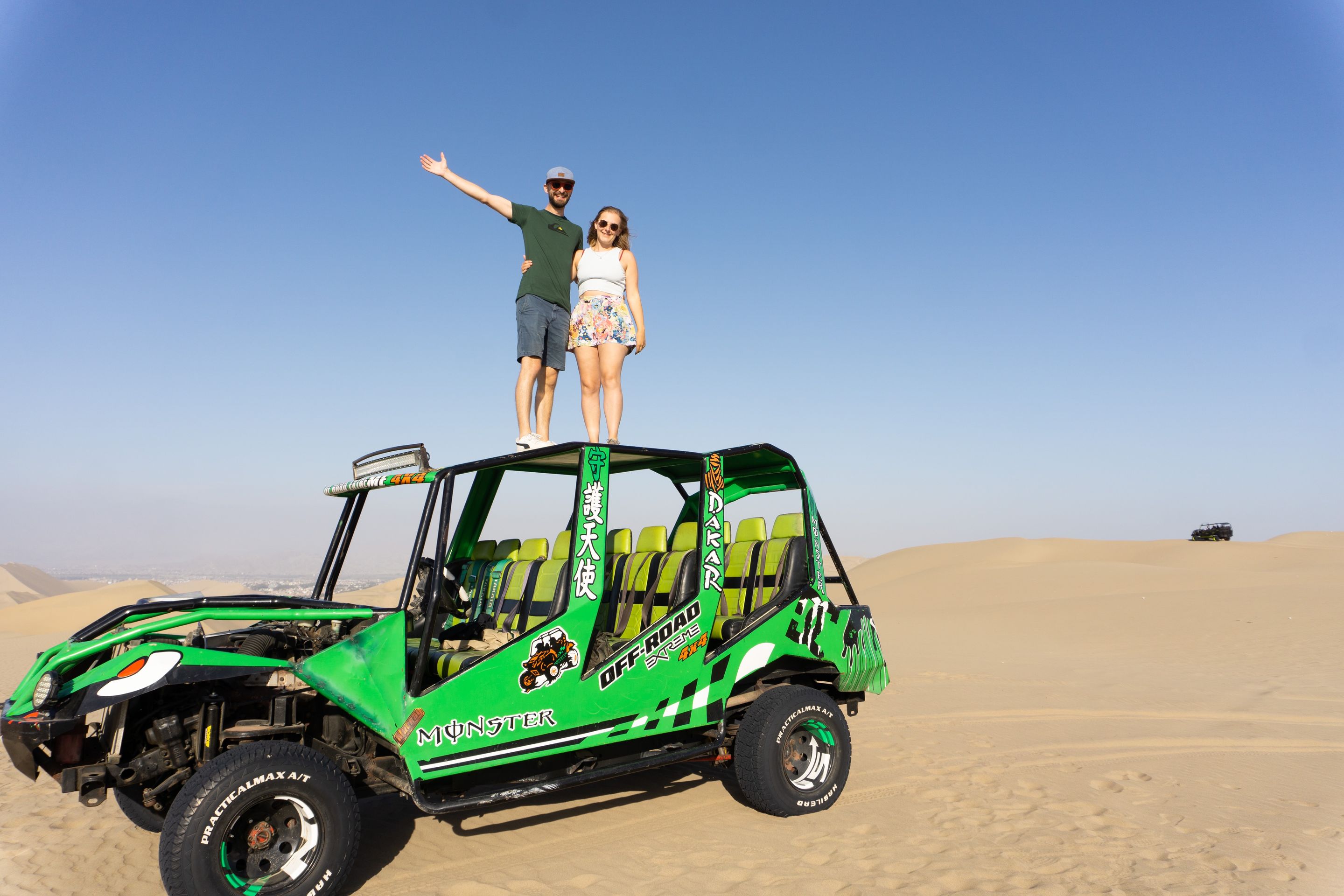
The next day, we have to get up early because we are taking a tour to Paracas. The coastal town is actually located between Lima and Ica, and many people spend a night there, but we didn't want to move around too much. So we have to leave an hour and a half earlier to pick up all the people in our group from their hotels, drive to Paracas in a van, and take a boat to the Islas Ballestas at 9 o'clock. Soon, on the left side, we see the first highlight: the Nazca Lines of Paracas, carved into the sandstone over 2000 years ago, which look like a cactus... or a signpost? A trident? Even the researchers are not exactly sure. What is certain is that the lines have survived for so long because it rarely rains here and because they are sheltered from the wind behind a dune.
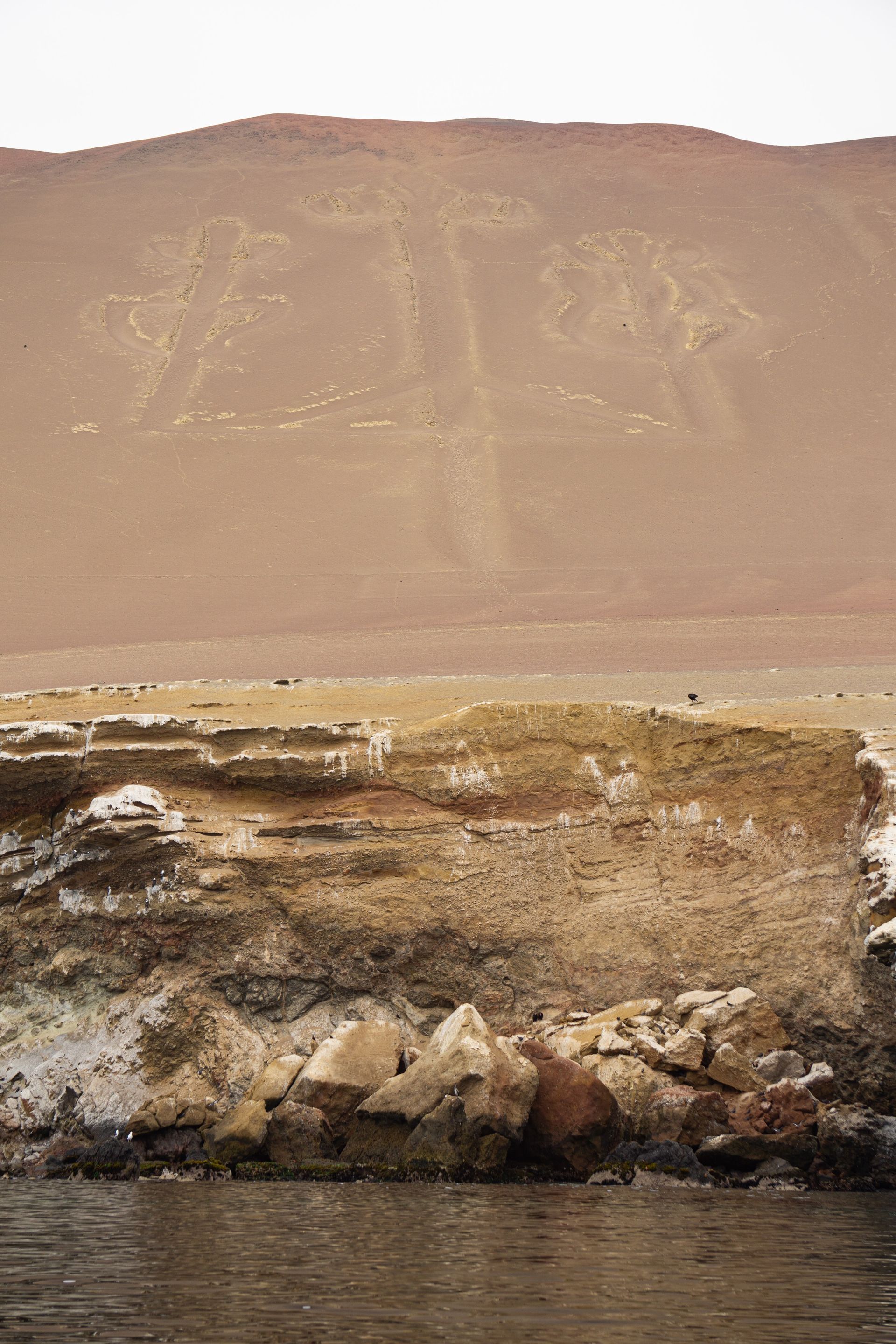
Then we continue to the bird islands where thousands of different birds live and breed. The largest island is almost completely black due to the abundance of birds. There are also some sea lions and penguins that we can observe from up close. In addition, the many small and large islands consist of countless tunnels, arches, and pillars formed by wind and water.
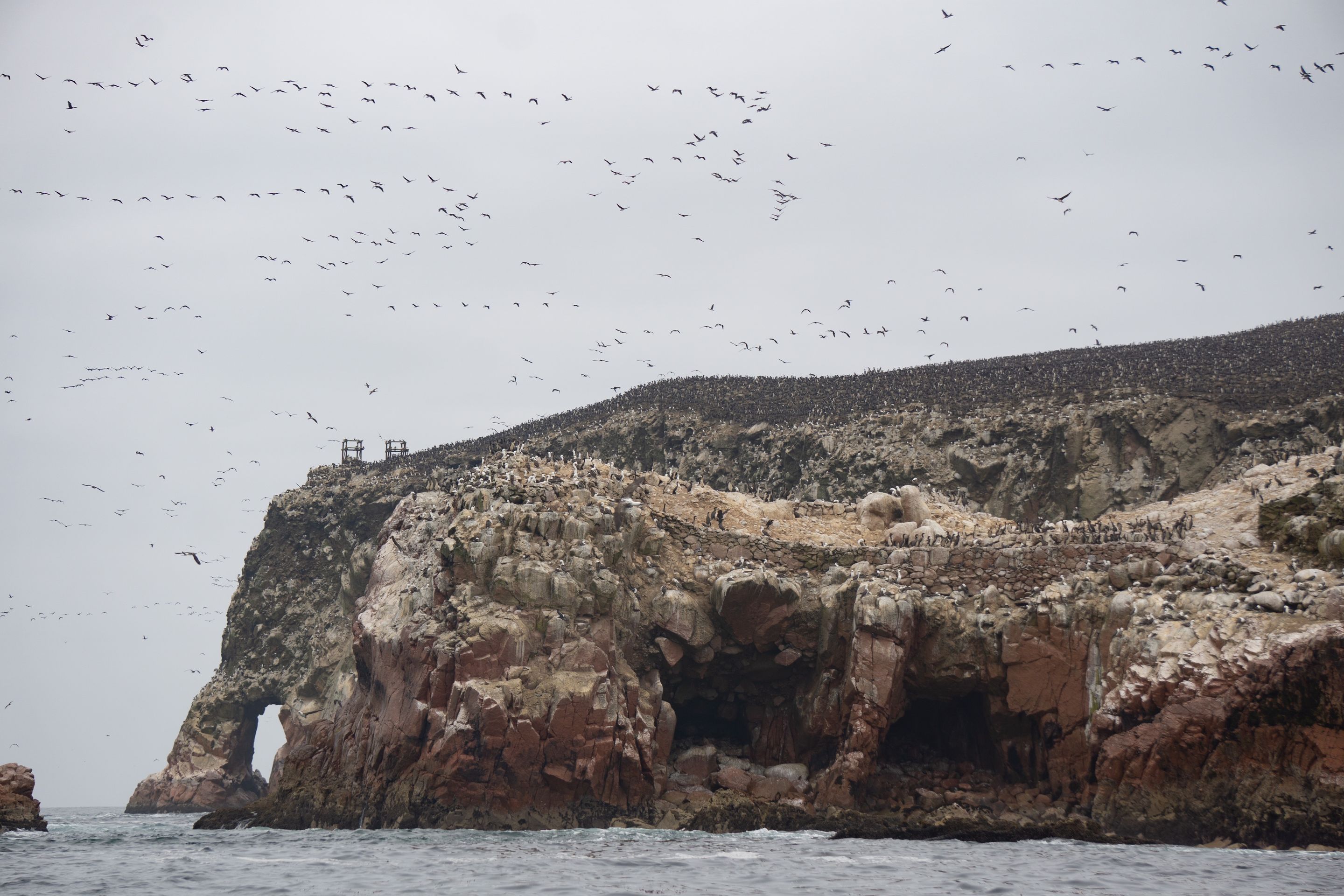
Back on land, the sun slowly comes out and it gets warmer (it was really cold on the boat!). The tour continues with the van to the Paracas National Park. From a distance, we can see flamingos here, and the familiar birds from the islands also come to the coast to fish. The national park has Peru's only red sand beach, which creates a great contrast to the surrounding landscape. In the little bay next to it, there are countless fishing boats that deliver fresh fish to the small restaurants and also collect special algae that are used in many cosmetic products. We enjoy fresh ceviche and calamari, which also interests the seagulls and pelicans... Afterwards, we have some time to relax on a beautiful beach and even discover a sea lion among the waves.
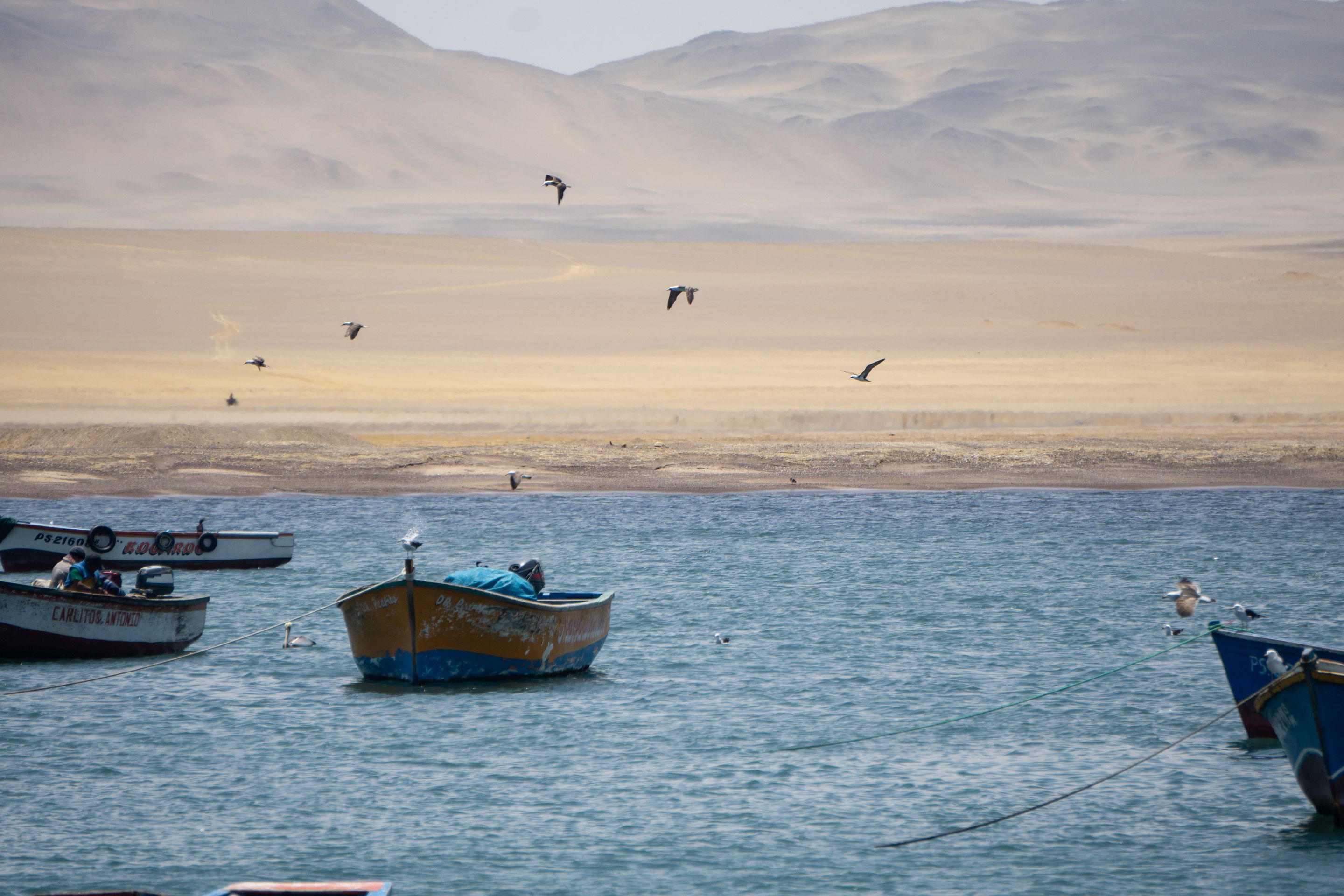
On our way back to Ica, we ask to be dropped off at the turnoff to the oldest winery in South America. The Tacama winery has been around since 1540 and produces wines and piscos (brandy). When we arrive, we meet Burcu and François, the French couple from the language school, to take a guided tour with a small wine tasting. We only understand half of the wine production terminology in Spanish, but the grounds of Tacama are beautifully laid out and there are some historic machines to see. In Ica, the sun shines so many hours a day that the grapes ripen very quickly and develop a high sugar content, which in turn results in a higher alcohol content during fermentation. Peruvians enjoy drinking the young sweet wine, while the high-alcohol red wine is mostly exported. We only liked the older white wine and the pisco, but that's a matter of personal taste.
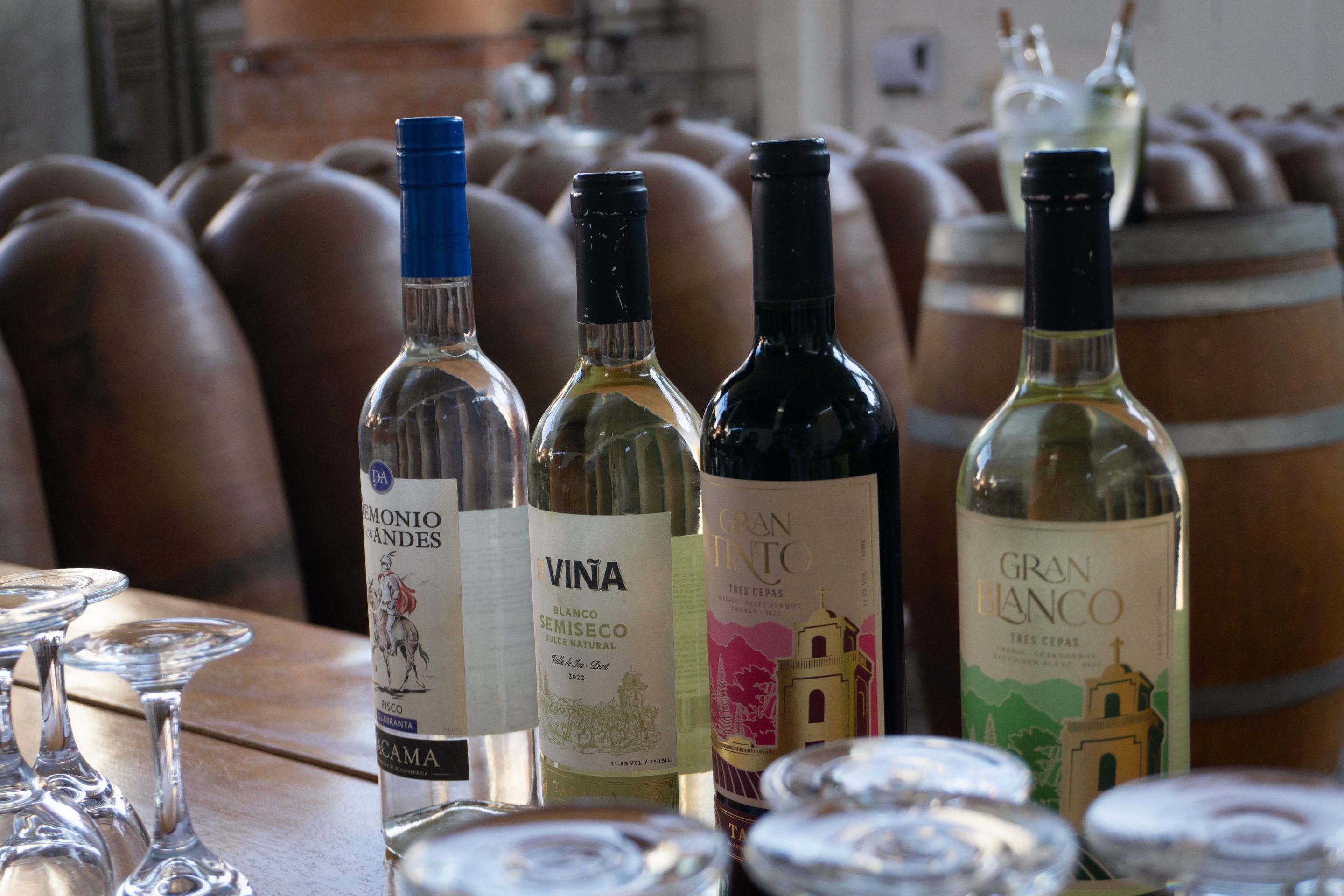
For sunset, we hike to the highest dune overlooking the Huacachina Oasis, which is very strenuous and steep, especially since you slide back half a step with every step in the sand... But the view is worth it. In the desert, nights get cold quickly, so we soon find ourselves in a restaurant and shortly afterwards in bed, because the next day it's time to get up early again.
By the way, we have to revise our initial opinion about punctual Peruvians, because almost every tour we booked starts with a significant delay (which wouldn't be so bad if we didn't have to drag ourselves out of bed so early every time...). Today, we are going to the Cañón de los Perdidos, a 2-3 hour drive from Ica. The canyon was discovered not too long ago (in 2011) and has since become a popular tourist destination. We drive for kilometers on bumpy "roads" through dry landscapes and dusty rock deserts that have different colors due to various minerals in the soil. But finally, we arrive at the end of the canyon where we can look down into the deep gorge from above. A short drive later, there is an easier way to descend into the canyon where it is wider and flatter. The wind blows fiercely around our ears, but it gets better deeper in the gorge. In the layered walls, we find small fossils and the bones of former marine creatures. Above us, Andean vultures soar through the air, and we walk and climb with our group and the guide among the weathered stones. After about an hour of hiking, we are back at the car.
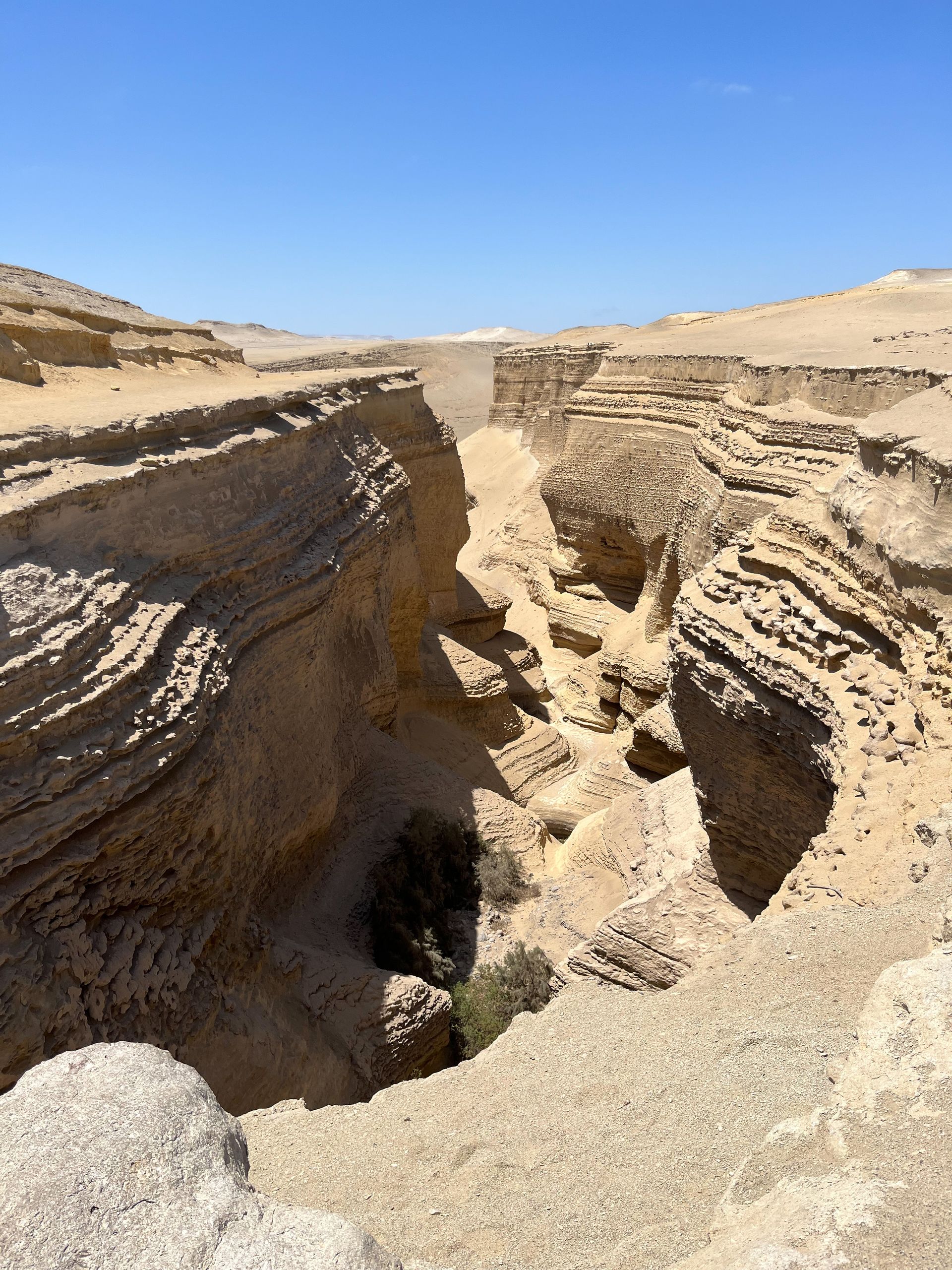
The tour ends with a pisco tasting at a small organic winery. With every glass, we learn a fitting toast, but unfortunately we can't remember them at all (which may also be due to the alcohol ;). We spend the evening with Geli and Merlin (whom we know from Colombia) and their crew, eating until we all get on the night bus to Arequipa together. The journey continues south!
Претплатете се на билтенот
Одговори
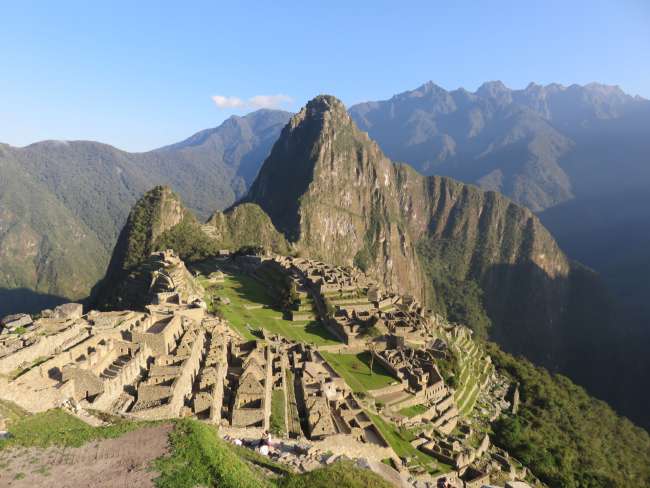
Извештаи за патување Перу
